Teach me to Curse
That’s not only adjacent to his English degree, or a case of his “using his degree” in a novel manner unplanned for by its architects; it’s straight down the middle of the plate. Mulaney does exactly the things we professors of English train people to do. But what’s odd to me is that he uses those skills to say the people who gave them to him conveyed no value.
A few nights ago, I “attended” one of those live-stream, artist-in-their-living-room events with a band that I’m crazy about and during the talk-back, I pointed out a number of references to lines of poetry in their songs, asking, “were some of you guys English majors?”
The lead singer (and principal songwriter) fessed up that he had been one at Toccoa Falls College and that the Rilke, T.S. Eliot, Maya Angelou references were his fault—a man after my own heart, I thought, and score one for English majors everywhere!—but then he quickly disclaimed: something to the effect of, “Yes, I was an English major; it was a pointless waste.” My rising reverie was, as you can probably guess, short-lived.
His disavowal put me in mind of a comedy sketch that I saw sometime last year that featured a similar distancing gesture. In it, comic John Mulaney goes on a tear about his decision to major in English in college, saying:
“What did I get for my money? What is college?… I went to college, and I have no idea what it was… By the way, I agreed to give them $120,000 when I was seventeen years old, with no attorney present. That’s illegal!… They pulled me out of high school; I was in sweat pants, all confused. Two guys in clip-on ties are like, “Come on, son, do the right thing. Sign here and you’ll be an English major.” I was like, “Okay.” That’s right, you heard me: an English major… I paid $120,000 for someone to tell me to go read Jane Austen, and then I didn’t. That’s the worst use of 120 grand I can possibly fathom.”
I’m with Chris Gehrz over at the Pietist Schoolman in thinking that getting a humanities degree from a private liberal arts university is one of the wisest investments a person can make, but I want to add a point about the irony of Mulaney’s tarnishing his degree thus, if only because it is so strange.
What I mean is, though humanities degrees are not primarily and thank God utilitarian first, Mulaney is one of those rare cases of a graduate who scores a job in exactly their field of study and makes a fortune from doing so. This fellow has built a little empire made only of words. He tells stories for a fabulous living. That’s it. He organizes his lived experience into language, polishes the syntax and timing, creates pacing and narrative force and structure and then delivers his composition in front of people who pay to hear him do it. That’s not only adjacent to his English degree, or a case of his “using his degree” in a novel manner unplanned for by its architects; it’s straight down the middle of the plate. Mulaney does exactly the things we professors of English train people to do. But what’s odd to me is that he uses those skills to say the people who gave them to him conveyed no value.
Obviously, this reminds me of Shakespeare’s Caliban, who in The Tempest remarks to Prospero,
“You taught me language; and my profit on't
Is, I know how to curse. The red plague rid you
For learning me your language!”
This phenomenon seems to be spreading. I recall for instance this article in the New York Times Magazine last year in which a student gets a full scholarship to an Ivy-league school and, still not having enough money, lobbies the college president for support during Spring break, which he gets, along with gift cards to spend at the local cafe and who then gets in to graduate school, developing critical thinking and writerly abilities as well as the platforming that comes with being an elite college alumni all of which he then uses to say that the college failed him. What? Every single idea he had, someone funded. Every request granted. If colleges are Alma Mater, what kind of way is this to treat such a generous, such an obsequious one as his?
Anyway, that’s what I thought when this fellow, who is for my money one of the 3-4 best songwriters alive, who crafts these literary gems resplendent with references to Biblical stories and modern poetry, and which other people find moving enough that we were gathered to watch a documentary about these 25-year-old songs, dismissed the degree that would have taught him to make them.
Road Trip 2020
I love every bit of Washington, but my does Oregon have us beat when it comes to beaches. I was not at all expecting such light, such shapes, such arrangements of space.
The Slow Road
Down the Coast in Corona-tide
“Home drive. High beams shearing the bromegrass,
blackcaps, brambles by the roadside;
red stems siphon frozen ground
grown soft, a bruise beneath the smooth suede
winter peach that rolls across
the dashboard.”
Cliff-side, OR
AFTER ALL THE STAYING INDOORS THAT EVERYONE’S DONE we just had to get out. Our family had quarantined with the best of them, but our two highly-energetic children were exploding in the house, and we thought, if we’re just awaiting the apocalypse anyway, we might as well do it poolside. By driving to Arizona, we encountered many fewer people than we would have in the course of our normal routines here in the middle of a big city. There, people stay inside in summer anyway, moving from pool, to grill, to television, which seemed better than cursing and muttering that all the shops in Seattle were closed, and the parks, and libraries. Our Lucca had been waiting all year to swim in her grandparent’s pool, so with nothing on the schedules, we set out.
I used to make the WA > AZ drive a lot as a kid, when my family lived in Lake Stevens and my grandmother in Scottsdale, but then, we balled through as quickly as we could on the I-5; my only memories of those trips were the orange groves in AZ that signaled we were close and the funny place names on the map I consulted: Yelm, Eureka, Blythe. Our kids are too little to stay strapped in to a seat all day, so we took it slow and opted for the more scenic road.
The children playing, Cannon Beach, OR
We stopped at the capital in Olympia to stretch, but the first days’ goal was to make Astoria for dinner and then Seaside for sleep. The former I’d never seen, but was eager to after having read a history of the city a while back. I love every bit of Washington, but my does Oregon have us beat when it comes to beaches. I was not at all expecting such light, such shapes, such arrangements of space.
We did touristy things: like paying to see concrete dinosaurs from the 1950’s, but also playing on the sand dunes, hiking in the redwoods, but those things are draws for a reason; they give us the world afresh. They give us ourselves in our proper size.
We arrived in Arizona a little exhausted after 5 days on the road, but we were full of rich encounters that made things seem, if not normal, at least worth the effort. Plus, it was nice to get my camera out again, as I also have recently pulled out again my guitar after so long with so little use. If I was impressed with the natural beauty of the West as always, I was this time struck over and again at the ingenuity required to let us see it: the bridges, roadways, and all of the other invisible, or often-taken-for-granted, infrastructure, accomplishments so great they seem, to me anyway, almost as magnificent as the terrain through which they pass.
Canyon near Navajo Bridge, AZ
Boat-Stealing in the Lake District
We were terrified out of silence by the crack of 100 wings lifting suddenly the hitherto slumbering mass.
The actual boats from Lake Windermere
The first class on Romanticism I ever took was during a study abroad trip to England with Wheaton College. We read Wordsworth's "Tintern Abbey" at Tintern Abbey, and Keats' "Ode to a Nightengale" from the back porch of the house were he composed it. Its being an undergraduate course, and an abbreviated one (because summer) we didn't read from "The Prelude," Wordsworth's great autobiographical poem, whose most famous episode features the young poet stealing a boat and rowing it, full of guilt and fear and adrenaline, into the night. Since I hadn't read the poem then, I couldn't have known how ironic it was that, on my first trip to the poet's home region--The Lake District--I and some friends stole a boat at night, rowing out to the little island punctuating Lake Windermere. Partly, we just wanted to get out on the water and the rental place was closed. We would be leaving the next day. Partly, like the young Wordsworth 150 years prior, we just wanted to cross some lines. What happened was this.
We rehearsed the plan in the nearby field because there wouldn't be time for a dry run at the boat launch. This was a one-shot deal. OK. We would have to operate in complete silence because the rent-a-boat place was next-door to a lakefront hotel with balconies where the professors were staying.
The dark would cover us mostly, but not if someone heard us and really looked. We predetermined our seating order in the rowboat: who would man which oars, who would flip the boat, who, shoeless, would push us out into the water before jumping in himself. No words until we were 20 feet out from shore.
Like a little mute militia we skated over the black water, Taylor and I rowing in graceful unison. Chatter drifted over the water from adjacent balconies. Over the lap of the water and in the moonlight, we saw, vaguely a rising and falling pitch of sleeping birds. Do birds really sleep in the water, I wondered for the first time? We tried to row around the colony, but were terrified out of silence by the crack of 100 wings lifting suddenly the hitherto slumbering mass. They're cawing was like an explosion in the quiet.
Changing tack, we abandoned stealth and opted instead for speed. Pulling against the disturbed water, we could've been young William Wordsworth who also stole about when he was young on lakes just like these. We got to the little island and someone had brought cigars--probably Mr. M. who went on to a Ph.D. at Yale and to become a theologian-- and someone else, which I find amusing now but delightful then, brought a loaf cake. I had some peaches and gingerbread. We picnicked on the small island laying back to watch the stars, laughing about the birds, and contemplating danger. And then, another problem.
The vessel was part of the fleet of rental boats by the shore. We were writers, philosophers, and theologians. We couldn't very well borrow a craft meant to be rented hourly, whether in business hours or out of them without paying for it. Not ethically, I mean. After, naturally, much debate, we calculated the hourly rate for our number at 35 GBP thinking to slip it under the booth's door. But paying for it wouldn't undo the crime. Besides, what would they think happened, walking in one morning for find a few bills on the ground? We needed to explain, but not in such a way that the crime could be traced to us. What if it were? Would we be thrown off the trip? Thrown out of school? Does the UK deport rowdy American law-breakers? Do they jail them?
Eventually, we settled on the text: "five blokes, two hours, John 3:16." We chose "blokes" so they wouldn't assume we were the American visitors: clever I thought, and a Bible verses so that they'd know why, having committed the crime and gotten away with it, we were so scrupulous as to pay for the rental anyway.
We slept hard following the late night, having gotten in around 3 am, so the next morning seemed dreamy still when I rolled over in my bunk, which was placed up against the window, to look out of the lake to see the girl I liked in a swimming suit for the very first time just as she leapt from the dock into the morning water.
More Contemporary Poets Christians Should Read
Since I can be fairly easily impressed upon to dispense advice regarding cultural matters, I hearty yield to the demands of the populus and offer, from the top of my head and in no particular order, some more poets whose work concerns eternal matters and that I have read with delight.
A couple of weeks ago, I wrote this little essay for The Gospel Coalition: “5 Contemporary Poets Christians Should Read,” in which I recommended the work of some fellow poets to persons of faith.
Many people have written since then, either on twitter, Facebook, or via my contact page to say things like “Thanks!” to “Have you got any Canadians to recommend?” to “Yes, but I’ve already read those; what else have you got for me?” Since I can be fairly easily impressed upon to dispense advice regarding cultural matters, I hearty yield to the demands of the populus and offer, from the top of my head and in no particular order, some more poets whose work concerns eternal matters and that I have read with delight.
Obviously, I hope that some readers of the column will seek out my poem books, not because moving copies is lucrative for me--it really isn't--but because I make poems best appreciated by people with Bibles in their houses. I don't mind how often you read it, but if you don't at least have one, much of what's going on in my work will be lost on you.
Bruce Beasely is about as good as they come, the poems challenging and encouraging all at once.
I mentioned Jennifer Maier's poetry; wicked smart; she is just a marvelous craftsman. Now, Now and Dark Alphabet are out currently and the third is coming soon.
I figured most readers of TGC already knew about Dana Gioa, but if you don't, get on it. Start with his new Selected.
Paul Willis’ books are wonderful too, each better than the last, imo.
I don't really think of Andrew Hudgins as a Christian poet anynmore, though I certainly used to. Now, he appears to me as principally a Southern poet, but these distinctions can be distractions. Saints and Sinners should find some friends among like-minded readers, but I'd pick up American Rendering, which is as strong a book as I can name.
I mean, Li-Young Lee is another figure who I used to think of as a Christian poet and now don't. He always had as muses his father, the silence, and his wife's body. I think recently he's ditched the first couple. Still, he's great. But you probably already knew that.
I can't imagine anyone interested in this kind of thing not knowing about Malcolm Guite, the very embodiment of a certain attentive way of being in the world.
Ok, but also James Matthew Wilson is a great and serious formalist; Catholic, as I understand it.
Brett Foster's new book hasn't arrived yet at my house, but I've heard great things.
You know who I just loved? Kelly Cherry. Does she still make poems? I stopped paying attention. But this is the tough thing about lists like this. Often, I follow not whole poets, but poems. Cherry made the most amazing poems I've ever read in this tradition, but I can't say anything about her career.
For serious, get Kingdom Come, by Jim Simmerman if you ever see it. Out-of-print and he's dead maybe 20 years by now, but that book is a wonder of Biblical linguistic play.
Oh and there's one more: you guys haven't seen it yet because it hasn't been published yet, but I have an advanced copy of Laura Reece Hogan's forthcoming Litany of Flights. You guys. Wait till you see this thing.
Well, that's enough to get you started anyway. I assume you already have subscriptions to Image Magazine, yes? Thereby, you will be introduced to most of the movers and shakers in this scene. Like Bruce Bond! O, how I love his poems!
Seriously, I'm grateful to the many of you who have written since this story came out asking about my books or offering to add some poets I haven't read yet. What else are these networks for? Keep the suggestions coming!
Poets ask me to write blurbs for their books sometimes, which add up, if you think about it, to a recommended reading list. Check these new books out:
Endorsements
Indecent Proposal
I’ve been translating Ovid’s setting of Jason and Medea on and off for about two years now, when I have time, which is seldom.
I’ve been translating Ovid’s setting of Jason and Medea on and off for about two years now, when I have time, which is seldom. I hadn’t thought of it recently until today, when people began tweeting in response to a statement by some politician from Texas, something to the effect that it’d be better to let the elderly die than to have the economy suffer, which, if true, is just an awful thing to think, much less to say. Apparently, some oldsters, hearing that pronouncement, have signed up, telling their grandchildren that they’d gladly give up a few of their last years if it meant that the ones they love could depend more completely on a steady paycheck, etc. I know they mean it as a sweetness, a selfless gift, but it is completely nuts to think that any loving child would take the trade. Thinking that to myself while scrolling, I recalled why I pictured the word “obscene,” in response.
That’s when I recalled this section of the Medea story wherein Jason offers to shave off a few of his years to give to his ailing father. The gods answer in rebuke.
The Trade
14.
Glad their boys haven’t been killed
or lost to one of the hundred hazards
they must have happened on, pious
parents rejoice, and, true to their various
whispered words, oaths in hope of safety,
make good and slay the appropriate
gilt-horned bull.
One jubilant dad is absent: Jason’s.
Aeson is old and fading fast into that
last sleep. So son offers some of his
years, pressing bold Medea thus: you are virtue.
You are strength. You saved and made me.
I can’t say how deeply I’m yours, how much I trust…
Is it even possible? Can you, through some
magic blade, some potion or prayer,
shave a portion of my days and give them
to him? He pleads and weeps and she,
moved by that piety, remembers her Aeetes,
but answers with rebuke.
How dare you? Would I take even a day
from my husband? May Hecate prevent
such injustice. But I can try, leaving
yours, to lengthen his. Hecate help me realize this.
15.
When its placid face had filled out,
and the moon come full circle, Medea
went out wandering--unshod,
unkept, hair uncombed and hanging
like her robe--through the great quiet
evening. Every breathing thing
was so deep in tranquility they might
well have been underwater. Even the plants
held their breath. The only motion: the
twittering stars, and her, reaching up, then
whirling, whirling like the planets, she cupped
the stream and held it aloft, a handful
of water over her head. And again. And again.
And then, a hymn.
—an excerpt from The Medea trans. Mischa Willett 2020
Music/ 2019
Not to trumpet my preferences as to who released the “best records of 2018” but to remember what my life was like year by year, and to do that by tracing its soundtrack.
Better Oblivion Community Center
S/T
I got my first Conor Oberst record in 1995, when I heard Collection of Songs over the house system at Zia Records in Phoenix, AZ. I don’t often approach the till asking who they’re playing—and this was all before the days when one could ask Siri, or Shazam for such info—but the song was busy destroying song structures as I had understood them to that point, and somehow had found a sub-basement beneath the term “lo-fi.” I loved it after a long tutelage and then the next, perfect, Letting off the Happiness (Saddle Creek, 1998), and so on through the next 4-5 records, but then our relationship began to cool.
Oberst’s teaming up with Phoebe Bridgers for this LP was a stroke of genius. Each artist’s weakness is compensated for, each strength amplified. I first heard of it through a twitter friend who announced it as his Album of the Year upon the initial listen way back in March. I was skeptical, but then I heard the first song, and the second, and so on through the rest of this gorgeous, melodic partnership.
Pedro the Lion
Phoenix
So I was pretty well primed to like this album. I’ve been following Dave Bazan’s music since the Whole e.p. came out in 1997 that I bought at True Tunes in Wheaton, IL, and I’ve seen him in concert more than any other artist. The early Pedro records are firmly fixed in the constellation of classics for me, and I dig the solo records nearly as much, though his bite of the feeding hand I find often irksome. But also, I was born and raised in Phoenix just like him, whereupon we both attended conservative Christian colleges, and then settled in the Pacific Northwest (and for awhile attended the same church). This record then, in which Bazan confronts the city of his youth and, in a way, his own back catalog of records that I’ve memorized, is as in my wheel-house as an artistic creation can be.
I love the way he writes the city’s biography. Little things like the mention of Circle K (our local convenience store that is, weirdly, a big part of life in PHX), the touring of model homes (Phoenix is in a perpetual subdivision building boom), and the name-checking streets that I drove down daily in those first magic years when I began driving and mostly used that freedom to attend concerts by bands like this.
Luxury
Trophies
This was the year of Luxury for me. This band has been around—and not just around in the world, but around my own niche musical scene—for some 20 years and I never quite got it. Probably, in the late 90’s and heavily influenced by the Seattle scene/grunge, I rejected the preening, sexy, 80’s punk/The Cure vibe this band radiated. I always knew they were cool, that they were one of us (Christian adjacent rebel scenesters), and I think I may even have had a Luxury sticker on my guitar case, picked up at a Blenderhead or Sometime Sunday show, but I had none of the records.
Well, I do now. Someone put me on to Trophies and I was taken immediately, and by “immediately,” I mean from the first words of the album which read “Like Allen Ginsberg reading ‘Howl’…” The odd thing is, I listened to a CD set of Ginsberg reading his complete poems on a solo drive across the US just after graduating college. It was one of the great artistic heights of my life. But the record doesn't stop there; a lyric in a later song reads “change your life,” a reference to the last line of Rilke’s “Archaic Torso of Apollo,” which I have translated and taught. Rilke’s work about angels forms the backdrop of my own new book of poems, which I was signing a contract for the very week I heard this record. What are the odds? On and on it goes. The record has feelings about Salvador Dali which I share, and about faith, and a dozen other things besides. But also: it kills. Musically, this record is so bracing and tight that it peers only with Radiohead, in my mind.
Okay, but that isn’t all. A documentary called Parallel Love covering the band’s changing fortunes was also released this year. I watched it at Northwest Film Forum (making it the only movie I saw in a theater this year, and only the second time I’ve ever gone solo to a theater) introduced by the band’s guitarist, Matt Hinton. The film is great and it tells the band’s story, but also the story of the scene out of which they came (which they largely rejected) but which is very dear to me. That film turned me from an appreciator to a fan. I started listening to Amazing and Thank You (Tooth and Nail, 1995) and thought Holy cow! Then I recalled the Andy Prickett quote from the film about their second two records being unbelievably special so I ordered the S/T (Bulletproof, 1999) which is now… I think… probably, in my top ten records ever. I just can’t believe the intelligence and artistry and faithfulness of these songs. I’m missing one record from their catalog and I’m only holding out because I don’t want to overdo it—Luxury records were easily my first, second, third, and maybe fourth most played this year—but I feel like…was it Alexander who wept when there were no more worlds left to conquer? Like that.
The Appleseed Cast
The Fleeting Light of Impermanence
It occurs to me that every album on my list of this year’s favorites features artists who have been making music for 20+ years, and about whom I’ve known for decades. This is surely the first time that’s been true across my year-end lists. Usually, unless a Damien Jurado record comes out, my year in music is dominated by new artists. Year of 1990’s nostalgia? Well, in any case, Appleseed Cast is another one of those. I loved their first album The End of the Ring Wars (Deep Elm, 1998) and the Low-Level Owl records after it and then proceeded on my course of life, occasionally glancing backwards in admiration but otherwise moving on. So when I heard they were making a new record, I was no more than mildly curious, but thankfully, I was curious enough to play the first track. “Whut?” I thought to myself. “What a work is here?” The things this band does with time signatures and technology, the way they’ve matured over the decades, never running out of ideas: the light, I mean to say, may be less fleeting than we have been given to assume.
Starflyer 59
Young in my Head
One last record that I didn’t see coming, and whose ascendance fits the narrative shape outlined above, Starflyer 59’s new effort also resurrected my affections for the band’s whole catalog. Here too, I’d been a huge fan of Silver (Tooth and Nail, 1994) and Gold but then left them alone when they moved away from shoegaze and fuzz toward a more typical vocally-forward sound. They’re a productive band, so there are something like 10 albums in-between those early ones and this and I missed them all, every once in awhile trying a couple tracks, not understanding them, and clicking somewhere else. What made this one different? Well, a shift in sound is one. Starflyer is always evolving and their recent turn toward groove, hook, synth, reminded me of Future Islands, The Fascination Movement, and even Dave Bazan, in the best ways. It gave me an in anyway, and once there, I saw how reflective and thoughtful the lyrics were, how muscular and clean the music. I listened to this record more than any other while driving my daughter to school in the mornings; maybe that’s part of it.
It made me excited about Tooth and Nail again: I watched this documentary about the label’s founding with a lump in my throat for joy at the world that was. And when I had time this year to listen to podcasts (usually when traveling to a conference or a poetry reading) I listened to Labelled. Then, randomly, I met Brandon Ebel (founder of the label) hanging out by SPU. Nothing can be like it was, of course, but I’m so glad some shape of the scene is around still, and gladder still for bands like this, so dedicated to their craft that they keep bothering to make music, despite everything.
Hey: year-end lists are my favorite way of discovering new music (algorithms be damned!), so, if you have one, drop a line sharing it?
Things in the New Now
It wasn’t that nothing mattered, it was just that things didn’t matter
Note: this little essay was originally published in ARCADE 31.1 in something like 2009. They have since reformatted their website and it is no longer available therethrough. I re-produce it here as an archive, though some ideas about the poetry of this city never seem to change.
No ideas but in things
- William Carlos Williams
It is as though the bar for aesthetic acceptability has been raised unilaterally. Whether this is a function of a generation’s having come of age under different architecture and album design, or of Apple’s having taught the masses what a curve means, good design is so ubiquitous now, and the collective eye so trained, that the vagaries of generations past smack of serious deprivation; we use the term “aesthetic crime” and mostly we use it to reference a particular decade in American production. All this good sense can be blinding, complacency bred, etc; especially here in the Northwest, where even government buildings--libraries, fire stations, city halls-- once the bastion of the bland, are so dedicated to graceful, progressive monumentality, it is hard to keep in mind that there is nothing “natural” about these choices, that it wasn’t always this way, that, as the poet Jane Kenyon writes, “it might have been/ otherwise.” Indeed, trying to tell my students what the world was like in the 1980’s is an exercise is exotica.
You couldn’t get coffee anywhere. There was literally no place where you could go and sit to study, chat with friends, do a bit of journalling. There was your house, and there was the bar. And bars weren’t quiet and cool like (some) are now. You couldn’t go and write in one like Hemingway in the Parisian 30’s. They were loud, smoky, and dominated by the jukebox and the pool table. And beer? Forget trying to get a beer. People drank Miller by the gallon. Budweiser was the “King of Beers.” You drank the soda pop that the TV told you to, wore the jeans and sneakers that were ordered by your caste, ate non-organic factory-farmed food, etc. It wasn’t that nothing mattered, it was just that things didn’t matter.
“It might have been otherwise.”
Enter: recycling, the internet, craft-brews, thrift stores, grunge rock, and cappuccinii, and suddenly, when I want to send a birthday card, I go to a boutique shop where I rifle through stacks of letter-pressed stock on hand-made paper, beautifully-designed limited edition prints, usually run on a vintage machine, and usually out of someone’s garage. Suddenly, when I get a birthday card, it’s not a semi-fancy holder for the cash I hope is inside, but a gesture; often, one so lovely it precludes the necessity of a gift.
The plums on the table matter again, because the table is solid wood, hand-planed by a friend of mine, and the because I bought the plums from the farmer at an outdoor market; they’re organic, local, and in-season. So delicious. So cold.
I mention this because Seattle is taking her place again in the annals of the made. Our poets have been producing verse-for-the-long-term, rather than the hip, or of-the-moment sort Stephen(ie) Burt poo-poos in their recent article “The New Thing” (Boston Review 2008). Our poets connected with the universities, like Kenney, Bierds, McHugh, Wagoner, or our younger writers: Savich, Nienow, Wing, Mountford.
There are our fluctuating cast of literary periodicals: the Seattle Review, which has just altered its format to include only long poems and essays, Poetry Northwest, under the strong editorship of Kevin Craft, the perfect-bound and full-color Image, and new kid on the block, The Monarch Review.
Nor are these the only publishing front: we have Copper Canyon Press, located in Port Townsend, which produces some of the most important poets ever, in addition to exciting new voices like Ben Lerner, and both Michael and Matthew Dickman. And we also have Wave Books (recently), which focuses on edgier writers whose work they produce in beautiful objects: books of minimalist design that focuses on quality materials. Sometimes the Wave Books project converges, and we get both a gorgeous object and internationally-important, era-defining poetry, as in Timothy Donnelly’s The Cloud Corporation (2011) which was probably the most aesthetically significant book of the decade, and is available in a handsome-to-the-hand Wave edition.
I didn’t set out here to provide a survey of the Northwestern literary culture as I’ve come to know it since moving to Seattle six or so years ago, but these things leap immediately to mind when I start thinking about things. When Jean Baudrilliard asked, in his final philosophical mediation before his death in 2007: Why Hasn’t Everything Already Disappeared, his question was as much about the notion of disappearance as it was about the notion of the (every)things doing the disappearing. It’s a semi-real question posed by critics, curators, and certain dwarf planets, and it is left for our designers--poets, consumptives, craftsmen--to call back across the distance (of time? of the country?) to answer.
Lucifer's Homily
Lucifer here has just found out the the world is going to end; not someday, but in the next month or so, and is trying his hand at warning people, knowing, through long experience, that they will do nothing to change their lives.
The following is a repentance sermon preached by the devil in Philip James Bailey’s Festus. In my forthcoming edition, it takes place in scene 7. Lucifer here has just found out the the world is going to end; not someday, but in the next month or so, and is trying his hand at warning people, knowing, through long experience, that they will do nothing to change their lives.
As with everything else in this Spasmodic epic, I just find this passage brilliant, both linguistically and theologically. His appeals, his challenges, the sheer force of oratory! This Lucifer is a terribly likable figure, but there is no irony here, no reason to think he isn’t saying the truth exactly as he understands it. No wonder the Victorians were so fond of this poem: they ranked him equal to Blake and Wordsworth, in the company of Milton and Shakespeare. Though that may be taking the admiration a bit far, one can see, at least, what they mean.
LUCIFER . I am a preacher come to tell ye truth.
I tell ye too there is no time to be lost;
So fold your souls up neatly, while ye may;
Direct to God in Heaven; or some one else
May seize them, seal them, send them — you know where.
The world must end. I weep to think of it.
But you, you laugh! I knew ye would. I know
Men never will be wise till they are fools
For ever. Laugh away! The time will come.
When tears of fire are trickling from your eyes,
Ye will blame yourselves for having laughed at me.
I warn ye, men: prepare! repent! be saved!
I warn ye, not because I love, but know ye.
God will dissolve the world, as she of old
Her pearl, within His cup and swallow ye
In wrath: although to taste ye would be poison,
And death and suicide to aught but God.
Again I warn ye. Save himself who can!
Do ye not oft begin to seek salvation?
You? you? and fail, as oft, to find? Sink? Cease?
And shall I tell ye, brethren, why ye fail
Once and for ever? why, there is no past;
And the future is the fiction of a fiction;
The present moment is eternity;
It is that ye have sucked corruption from the world
Like milk from your own mothers: it is in
Your soul-blood and your soul-bones. Earth does not
Wean one out of a thousand sons to Heaven.
Beginnings are alike: it is ends which differ.
One drop falls, lasts, and dries up — but a drop;
Another begins a river: and one thought
Settles a life, an immortality:
And that one thought ye will not take to good.
Now I will tell ye just one other truth:
Ye hate the truth as snails salt — it dissolves ye,
Body and soul — but I don't mind. So, now:
Up to this moment ye are all, each, damned.
What are ye now? still damned! It will be the same
To-morrow — and the next day — and the next:
Till some fine morning ye will wake in fire.
Ye see I do not mince the truth for ye.
Belike ye think your lives will dribble out
As brooks in summer dry up. Let us see!
Try: dike them up: they stagnate — thicken — scum.
That would make life worse than death. Well, let go!
Where are ye then? for life, like water, will
Find its last level: what level? The grave.
It is but a fall of five feet after all;
That cannot hurt ye; it is but just enough
To work the wheel of life; so work away!
Ye may think that I do not know the terms
And treasures whereupon ye live so high.
But I know more than most men, modestly
Speaking. I know I am lost, and ye too. God
Could only save me by destroying me;
So that I have no advantage over you.
And therefore think ye will the rather bear
One of your own state to advise for ye
Now don't you envy me, good folks, I pray, —
Envy's a coal comes hissing hot from hell.
Twill be such coals will burn ye by the way.
Your other preachers first think they are safe.
Now I say, broadly, I am the worst among ye;
And God knows I have no need to wrong myself,
Nor you. I boast not of it, but as truth:
It is little to be proud of, credit me.
What is salvation? What is safety? Think!
Who wants to know? Does any?
THE CROWD. All of us.
LUCIFER. Then I will not tell ye. You shall wait until
Some angel come and stir your stagnant souls:
Then plunge into yourselves and rise redeemed.
Come, I’ll unroll your hearts and read them to ye.
To say ye live is but to say ye have souls,
That ye have paid for them and mean to play them,
Till some brave pleasure wins the golden stake,
And rakes it up to death as to a bank.
Ye live and die on what your souls will fetch;
And all are of different prices: therefore Hell
Cannot well bargain for mankind in gross;
But each soul must be purchased, one by one.
This it is makes men rate themselves so high:
While truly ye are worth little; but to God
Ye are worth more than to yourselves. By sin
Ye wreak your spite against God — that ye know:
And knowing, will it. But I pray, I beg,
Act with some smack of justice to your Maker,
If not unto yourselves. Do! It is enough
To make the very Devil chide mankind —
Such baseness, such unthankfulness! Why he
Thanks God he is no worse. You don't do that.
I say be just to God. Leave off these airs
Know your place — speak to God — and say, for once,
Go first, Lord! Take your finger off your eye!
It blocks the universe and God from sight.
Think ye your souls are worth nothing to God?
Are they so small? What can be great with God?
What will ye weigh against the Lord? Yourselves?
Bring out your balance: get in, man by man:
Add earth, heaven, hell, the universe; that's all
God puts his finger in the other scale,
And up we bounce, a bubble. Nought is great
Nor small with God — for none but He can make
The atom indivisible, and none
But He can make a world: He counts the orbs,
He counts the atoms of the universe.
And makes both equal — both are infinite.
Giving God honor, never underrate
Yourselves: after Him ye are everything.
But mind I God 's more than everything; He is God.
And what of me? No, us? no! I mean the Devil?
Why see ye not he goes before both you
And God? Men say — as proud as Lucifer —
Pray who would not be proud with such a train?
Hath he not all the honor of the earth?
Why Mammon sits before a million hearths
Where God is bolted out from every house.
Well might He say He cometh as a thief;
For He will break your bars and burst your doors
Which slammed against Him once, and turn ye out,
Roofless and shivering, 'neath the doom-storm; Heaven
Shall crack above ye like a bell in fire,
And bury all beneath its shining shards.
He calls: ye hear not. Lo! he comes — ye see not.
No; ye are deaf as a dead adder's ear:
No; ye are blind as never bat was blind,
With a burning bloodshot blindness of the heart;
A swimming, swollen senselessness of soul.
Listen! Whom love ye most? Why him to whom
Ye in your turn are dearest. Need I name?
Oh no! But all are devils to themselves;
And every man his own great foe. Hell gets
Only the gleanings; earth hath the full wain;
And hell is merry at its harvest home.
But ye are generous to sin and grudge
The gleaners nothing; ask them, push them in.
Let not an ear, a grain of sin be lost;
Gather it, grind it up; it is our bread:
We should be ashamed to waste the gifts of God.
Why is the world so mad? Why runs it thus
Raving and howling round the universe?
Because the Devil bit it from the birth!
The fault is all with him. Fear nothing, friends!
It is fear which beds the far to-come with fire
As the sun does the west: but the sun sets;
Well; still ye tremble — tremble, first at light,
Then darkness. Tremble! ye dare not believe.
No, cowards! sooner than believe ye would die;
Die with the black lie flapping on your lips
Like the soot-flake upon a burning bar.
Be merry, happy if ye can: think never
Of him who slays your souls, nor Him who saves.
There is time enough for that when ye are a-dying.
Keep your old ways! It matters not this once.
Be brave! Ye are not men whom meat and wine
Serve to remind but of the sacrament;
To whom sweet shapes and tantalizing smiles
Bring up the Devil and the ten commandments —
And so on — but I said the world must end.
I am sorry; it is such a pleasant world:
With all its faults it is perfect — to a fault:
And you, of course, end with it. Now how long
Will the world take to die? I know ye place
Great faith upon death-bed repentances;
The suddener the better. I know ye often
Begin to think of praying and repenting;
But second thoughts come and ye are worse than ever;
As over new white snow a filthy thaw.
Ye do amaze me verily. How long
Will ye take heart on your own wickedness,
And God's forbearance? Have ye cast it up?
Come now; the year and month, day, hour and minute,
Sin's golden cycle. Do ye know how long
Exactly Heaven will grant ye? how long God, —
Who when he had slain the world and wasted it,
Hung up His bow in Heaven, as in his hall
A warrior after battle — will yet bear
Your contumely and scorn of His best gifts, —
Man's mockery of man? But never mind!
Some of us are magnificently good,
And hold the head up high like a giraffe;
You, in particular, and you — and you.
Good men are here and there, I know; but then, —
You must excuse me if I mention this —
My duty is to tell it you — the world,
Like a black block of marble, jagged with white,
As with a vein of lightning petrified,
Looks blacker than without such; looks in truth,
So gross the heathen, gross the Christian too —
Like the original darkness of void space,
Hardened. Instead of justice, love and grace,
Each worth to man the mission of a God,
Injustice, hate, uncharitableness,
Triequal reign round earth, a Trinity of Hell.
Ye think ye never can be bad enough:
And as ye sink in sin, ye rise in hope.
And let the worst come to the worsts you say,
There always will be time to turn ourselves,
And cry for half an hour or so to God:
Salvation, sure, is not so very hard —
It need not take one long; and half an hour
Is quite as much as we can spare for it.
We have no time for pleasures. Business! business!
No! ye shall perish sudden and unsaved.
The priest shall, dipping, die. Can man save man?
Is water God? The counsellor, wise fool!
Drop down amid his quirks and sacred lies —
The judge, while dooming unto death some wretch,
Shall meet at once his own death, doom, and judge.
The doctor, watch in hand, and patient's pulse,
Shall feel his own heart cease its beats — and fall:
Professors shall spin out, and students strain
Their brains no more; art, science, toil shall cease.
The world shall stand still with a rending jar,
As though it struck at sea. The halls where sit
The heads of nations shall be dumb with death.
The ship shall after her own plummet sink,
And sound the sea herself and depths of death.
At the first turn Death shall cut off the thief,
And dash the gold bag in his yellow brain.
The gambler, reckoning gains, shall drop a piece;
Stoop down and there see death; — look up, there God.
The wanton, temporizing with decay,
And qualifying every line which vice
Writes bluntly on the brow, inviting scorn,
Shall pale through plastered red: and the loose, low sot
See clear, for once, through his misty, o'erbrimmed eye.
The just, if there be any, die in prayer.
Death shall be every where among your marts,
And giving bills which no man may decline —
Drafts upon Hell one moment after date.
Then shall your outcries tremble amid the stars:
Terrors shall be about ye like a wind:
And fears come down upon ye like a house.
FESTUS. Yon man looks frightened.
LUCIFER. Then it is time to stop.
Doing Research with Humanities Undergraduates [uncut version]
I do think that it is clearer in its final form, and I also think clarity is a noble goal, but, when the edits came back I was a bit sad. To give you a sense of what I mean, here is the opening as I originally had it.
I am grateful to the editors over at The Chronicle of Higher Education for publishing my thoughts about helping undergrads take their work in humanities classes more seriously in the form of this essay. And I am also on record as saying that I love editors. I do. They do tremendous and often thankless work and usually, they make my writing sound better after they’ve fiddled a bit.
But in the case of this piece, I just miss some of the pacing, inversions, and odd verbs that I had in the original, before the language was flattened for a broad readership like the Chronicle’s. I do think that it is clearer in its final form, and I also think clarity is a noble goal, but, when the edits came back I was a bit sad. To give you a sense of what I mean, here is the opening as I originally had it:
Admissions Office materials routinely tout the benefits of small class-sizes with pictures of lab-coated undergrads doing beaker-work alongside goggled science-professionals. But how much is that work real work, I've always wondered. Are the pair about to discover something? Or is the research, like the photo, staged? And how could we in the undergraduate Humanities engage the eager intellectuals, however “budding,” with which we’re surrounded? Mightn’t giving students real, necessary, projects to do, rather than just "assignments," be a boon to all concerned?
Admissions brochures routinely tout the benefits of small class sizes, with pictures of lab-coated undergraduates doing beaker-work alongside science professors in safety goggles. I've always wondered: Is the research, like the image, staged or real? And if it is real, could those of us in the humanities offer undergraduates a similar opportunity to contribute to our scholarship?
See what I mean?
One other thing that got left on the cutting room floor was the fourth anecdote, cut for length. Unfortunately, this was the one specific to the Writing classes I teach at SPU. I liked it. I still do.
Here then, for the curious, is the excised passage, featuring one more tip on how humanities professors might engage their students in fruitful research.
And one more: I recently transitioned to a new university and was a bit flummoxed by some of the mythologies and folkways that made up the campus culture. I was new, but I loved the place instantly and wanted to know as much about it as possible, to put the new country's wine in my blood, so to speak. But when was I going to bother researching the figure for whom the building I work in was named? I was curious--I usually am--about such things: "Tiffany Loop" sounds like such an evocative, almost a magical name for a quadrangle, and it's a lovely place, full of century-old plane trees and poplars. Who was this Tiffany? I could research it myself, but I've got a new book just published and babies at home. So I thought I'd have to leave aside the buzzing in my ear, the questions constant as my two-year-old's: why is there a totem pole on campus? How come that road doesn't lead anywhere? Who made that great relief sculpture on the clock tower?
Then, I remembered I was assigned to teach a composition class aimed at helping freshman write argumentative academic papers. The HOWTO text was fixed, but we could assign any readings we wanted. I read somewhere that a good leader is someone who refuses to take the leadership position, instead directing energy where it is most likely to solve problems. I wonder if the same is true for professors. I could very well have looked up all this information on my own. I could have told it to them via lecture or media slides, could have quizzed them to make sure they'd mastered it before leaving my class and assigned papers wherein they told those stories back to me. That would have been fine. Normal even. But it would have meant a lot more prep for me and a lot less fun for them. Instead of playing the authority distributing knowledge, I turned them into explorers, discoverers: authorities at least on their chosen site. They'd pick a named site--a building, a stairway, a library collection, and write research papers based on their findings.
They uncovered some interesting things. One noted, for example, looking through the archives, a photograph from one of the college's first graduating classes featuring four seated figures: two of them women and one a native American, which made real for her the fact that SPU has been co-educational and diverse since its founding. That affects how she thinks about the campus now: that diversity and gender equity are not --for us anyway--historical correctives or post-1970's activism come home to roost. They are part of our DNA, as integral to what this place is as those plane trees in Tiffany Loop.
Another student found that few of the buildings are named for actual donors. Most were ways of honoring longtime servants of the college: a librarian here, a biology teacher there. One of my students knows more about the sculpture in my building's lobby than anyone else on campus. Maybe anyone else anywhere, since she found the sculptor's address and wrote him a physical letter to which he responded with the details of its creation, touched that anyone cared. Another wrote a eulogistic description of a courtyard we've just lost due to renovation. I found out about the totem pole.
The point is not that students are an untapped labor resource that we should exploit to our engorgement, but that they're people, and people, I have found, generally know when they're being tricked. Inviting students into one's actual research can be daunting to set up, and it can't always be done--certain classes need to be taught regardless of how they match up with our current research concerns, but if you have a supportive enough environment, as I do, what one usually needs is the imagination to think aloud, alright, I've got to teach such and such a class. I've got the goggles; you get the beaker. What couldn't we brew up?
Criticism, Social Media Trolls, and the Communion of Saints
I do this often. Rather than silo-ing my intellectual activity, when I read an interesting bit of theory, be it literary criticism or theology, I think What would taking this seriously look like in a poem? How would I apply this in a classroom?
A couple of weeks ago, I published this little essay over at Mockingbird, thinking through the implications of a class-activity I do with young writers. Basically, we make some writing, and then get rid of it, the way a painter scrapes the morning’s work from a canvas, or a sculptor smashes a nascent bowl that’s going wrong back into a lump of clay on the wheel. It’s a little risky, but fun, and the students, I claim there, feel more free as writers afterward.
The essay attracted 30 or so positive responses (people who bothered to send emails or comment on twitter, etc)—ranging from “Fascinating and insightful,” to “Wow! This is great.”—and one dismissive, jeering, troll-like response. Never much one for practical accounting, I am fixating, as any creative person will recognize, on that one.
I explained to my pop-up interlocutor as patiently as I could, the impetus behind the assignment: I had just read Rene Girard’s I See Satan Fall Like Lightning, and so was thinking about the notion of sacrifice and its necessary violence when crafting the assignment, so this was a natural out-working of that.
I do this often. Rather than silo-ing my intellectual activity, when I read an interesting bit of theory, be it literary criticism or theology, I think What would taking this seriously look like in a poem? How would I apply this in a classroom? I could be wrong here—or I could be highlighting the differences between educators trained in research-universities and those in SLAC’s—but isn’t that one of the things college classrooms are for? They’re incubators for ideas, places to try new things. Some will work. Some won’t. Learning happens either way.
The heckler heckled. “Oh, give me a break,” she said, not buying the concept of applied pedagogy.
I feel like I was given permission to try such an audacious pedagogical experiment (if, indeed, it is that) by Alan Jacobs, who writes in this essay
If you trust your teacher and your fellow students, then you can risk intellectual encounters that might be more daunting if you were wholly on your own. That trust, when it exists, is grounded in the awareness that your teacher desires your flourishing, and that that teacher and your fellow students share at least some general ideas about what that flourishing consists in.
Maybe that’s why the assignment works in my classes even when it doesn’t sound like it would work in the abstract. Build an atmosphere of mutual trust and respect and it’s amazing what you can do. For one instance, in the Imaginative Writing class I taught just last night, I shared an essay I’m working on that has some problems with my students. I presented the problems, read them what I had so far, and solicited feedback. And they were so helpful! I actually think we cracked it. Teachers don’t usually, I think, share their own writing with students, especially unfinished pieces, but I felt like it was possible in our class because I trust them to take it seriously, trust that they won’t judge me, trust their taste.
I should have just written her off. As the great prophetess Taylor Swift has taught us, “The hater’s gonna hate, hate, hate, hate, hate.” I should have deleted my facebook by now. But I couldn’t shake it. It bothered me.
But then!
Just this morning, I was reading Austin Kleon’s excellent little book Keep Going and came across this story. Kleon writes:
When my son Jules was two, I spent a lot of time watching him draw. I noticed that he cared not one bit about the actual finished drawing (the noun)—all his energy was focused on drawing (the verb). When he’d made the drawing, I could erase it, toss it in the recycling bin, or hang it on the wall. He didn't really care. (69)
and then, I found out that Kurt Vonnegut used to have an assignment for high schoolers that went
write a poem
don’t show it to anybody
tear it up into little pieces and throw them in the trash
The idea, as Kleon summarizes, is that “when you’ve lost your playfulness,” you need to “practice for practice’s sake” without focusing on results. Yes.
That is precisely what I was trying for in this assignment.
Somehow, reading that these forerunners, my betters, have tried similar experiments, or even the exact same ones, allows me, Billygoat Gruff, to stamp right over the bridge they’ve made, pleasantly ignoring the trolls beneath.
There’s just something about having a team. Whether they’re people that one knows IRL, or dead authors, or French theorists, or sketch artists, it’s possible to cobble together a cloud of witnesses who make solo notes into chords, into progressions.
So, the lessons, as always:
there is nothing new under the sun
whether in life, business, classrooms, or art, you should make great and daring work
expect criticism for said, but also
be fortified against the above by the team you’ve built, stretching across time and space, angels waiting to steady you, as the Psalmist says, “lest thy foot stumble against a stone”
Best Tips, Tricks, Life-hacks I've Found
There’s a whole sub-genre of the internet dedicated to productivity and How To Tie Your Shoes Like the Pros!! kind of articles. Much of it is silly and wasteful or pedantic and unrealistic, but every once in a while, I’ll stumble across something, either from a friend, or on the web, or in an old book, and it will make a tangible difference in my workflow or in my life.
I’m always reading about some way of doing things better, faster, more efficiently, much as my millennial students are doing, apparently. There’s a whole sub-genre of the internet dedicated to productivity and How To Tie Your Shoes Like the Pros!! kind of articles. Much of it is silly and wasteful or pedantic and unrealistic, but every once in a while, I’ll stumble across something, either from a friend, or on the web, or in an old book, and it will make a tangible difference in my workflow or in my life. Here are some of the changes I’ve made in the last decade or so that have helped more than I would’ve expected.
Wool Socks
Wool socks are the best. It’s the material that socks are supposed to be made from and I had been living a kind of half-life ensconced in cotton until I discovered the true way. They last forever (literally: many companies that produce them offer lifetime guarantees) and they’re dry, don’t loose their shape, don’t stain, and feel not just neutral but actively comfortable all day long. I got one pair for Christmas and found that I was looking forward to their being clean so I could wear them again. Slowly, I replaced nearly all my daily and dress socks with wool versions. It’s weird to get so much joy from something so mundane, but there it is. I’m three years or so into my conversion and still on fire.
KonMari Method
This is the silly name for the way that Marie Kondo folds clothes. I read her book, The Life-Changing Magic of Tidying Up and it was fun but it didn’t change my life. Now, there’s a TV show about her helping other people clean up. But what did stick with me is the way she has of folding clothes so that they stand up on edge in one’s drawers. I do it with everything now and my dresser has never been so organized. I smile a little whenever I open it in the morning, sometimes running my hands over the perfect stacks admiring their uniformity and beauty. You can learn how to do it through a bunch of YouTube videos, but the book taught me just fine.
Safety Razors
I suffered under the Gillette empire for nearly 20 years before the revolution. They gave me, like they do all American males, a free MACH 3 for my 18th birthday and I used that thing, replacing the blades at $18 per pack every month for the next couple of decades. It’s actually a good product—I was a whiz with mine, smoothing the necessary surfaces with a few quick flicks that often inspired awe in onlookers—but they’re largely plastic (bad) and indecently expensive. I switched when a friend sent me a proper safety razor by Merkur. Now, blades cost around $1 for 5 of them, the handle has a heft that suggests a dignity of enterprise, and the thing rinse cleanly immediately and every time. It’s not only cheaper, but is a superior, if earlier, technology, which is not dominating the market only through suppression by better funded competitors.
Cold Showers
When I shower, I turn the water to cold—sometimes cold enough to shorten my breath—before getting out. It’s only for the last minute or two, but it makes a tremendous difference. I feel like I’ve just had a coffee, for one. For another, my clothes feel better against my body all day, for hours afterward. It takes a little getting used to, and it’s not intuitive, given how comforting warm showers can be, but the tightening, quickening, energizing effects are worth it.
Huel
Huel is like a protein powder, except it’s actually a complete food. It contains the requisite amount of fat, fiber, carbs, and protein person needs in a meal and is cheap (around $1.50 per serving) and vegetarian. The company is so environmentally conscious they don’t even include a plastic scoop in each new bag, trusting that you’ll have saved your scoop from the last one, like a responsible human being would. I love everything about it: the t-shirt they send, the typography on the package, even the free shaker that comes with the first order. People use it in all kinds of different ways—mixing in shakes, replacing breakfast—but for me, it’s just a terrific supplement.
So sometimes I’ll have toast and jam for breakfast. Of course, I know that 15g of carbs and 2g of fructose are not sufficient to power an adult male body, much less a mind, through the hours of morning, but I still do it because I haven’t purchased the appropriate meats and veggies, or because I don’t want to make and then clean up a mess. But now, I’ll make the toast and a shaker of Huel, with the confidence that my muscles, brain, tissues, etc are all humming along happily and the whole thing takes under 5 mins, from prep through cleanup. Physical and financial benefits are swell, but for me the peace of mind is best. I never wonder anymore whether my day is nutritionally complete. It is. If all I eat one day is a slice of pizza and an apple, that’s fine; I’ll just drink a steak and salad’s worth of Huel, rounding out the picture. If you want to try it, use this link and they’ll give you $10 off. (I’m not an affiliate or whatever, just a fan).
Physical Media
I listen to CD’s, having given up on vinyl a few years ago. It’s the best. I love finding great records (by which I mean “discs”) for $2 at the Goodwill, or flipping through the stacks at music shops. For better or for worse, most of the music I love was made in the 1990’s or early 00’s; most of it never pressed to vinyl. I love being reminded of what I’ve invested in and the convenience of playing music in my car without fiddling with my phone. I love the sound and shape and not having to wipe them down before every listen. I love not being beholden to a streaming service that can, at any time, decide to offer only re-mastered versions, or drop a label, or raise prices. Dancing around the house without worrying about skipping, or scratching, is just icing.
Bullet Journals
There are so many sites extolling the virtues of Bullet Journalling that I don’t feel like I need to outline the method here. Suffice it to say that it’s how I keep track of my appointments, projects, and days and it’s the only such system I’ve stuck with for any length of time. The best part is that it’s a system and not a product, so you don’t have to buy a new thing each year and aren’t beholden to a brand. That said, everyone knows that Shinola makes the most beautiful journals around but for some ridiculous reason, they don’t make a dot-grid format, which is essential for the method. That’s depressing, because it means thier ceding market share to lesser companies like Barton Fig, and a host of rip-offs. For now, the best one can do is to use Lechturm 1917, which are very decent; I’d even think them the gold-standard, had I never seen a Shinola, which skewed my expectations of what a journal could be.
Anglican Spirituality
I wondered whether to put this on here as a life-hack, since most will think of Anglicanism as a kind of religion, but I was already a Christian and always have been, and Anglicanism, in fact, has no distinct set of beliefs, but is rather a system, an organizing principle meant to give shape and structure to one’s spiritual life, so in a sense, it’s the only thing here that really is a life-hack. I have much more to say about these practices and probably will say them elsewhere, if not in other posts here, but for now I just want to note the comfort and efficacy of the system.
Basically, Anglicanism provides a few structures without which I’d been sprawling for most of my life. For example, in it, we do Morning and Evening Prayer. I used to think: am I going to pray this morning? I just did last night. Maybe kind-of on my way to work. And when I made time for it, I had to cast about wondering what to pray for. Myself? The trees? My family? Anglican practice settled all that with it’s scheduling and scripted prayers. I pray for much more that I used to, guided by the wisdom of centuries, and much more frequently than ever, since I’m not intimidated by the idea that I’ll have to come up with something to say.
The benefits extend to Bible reading also. Using the lectionary, I don’t have to come up with little studies like: maybe I’ll read around in the Psalms, then a study of Sovereignty as a concept. No, I now read the apportioned bit that takes me through most of the scriptures on a predictable cycle. I love it. I love the certainty of beliefs—that creedal Christianity guides the whole denomination and that it’s well and truly worldwide: I can find an Anglican church in any state or country I’ll ever find myself in and the values won’t really have changed place to place. I went to a low-church for years before discovering they baptized people multiple times (that’s a heresy). I went to another one where they didn’t believe in baptism at all! (that’s another one). It’s not so much the theological wrong-headedness of those positions but the fact that I didn’t know them going in; I couldn’t have known them, since they were just the whims of whoever was running the show.
There’s a reason why most denominations in America are shrinking down to 6-10 septuagenarians in a huge, beautiful building while the ACNA (which started 10 years ago) now has over a thousand churches in N. America alone. Part of it is the refusal to trade the Great Tradition for a post-1970’s revisionism and the provision of deep historical rooted-ness and truly global connection that refusal provides in these rootless and hyper-local times. Part is probably a barely-explicable move of the Spirit. But part is also just the plain good sense of it, that people like me have stumbled upon a bio-hack that lasts one’s entire life. It’s a terrific comfort, somehow, to know (I have a copy of it in my prayer-book) exactly what words will be spoken over my corpse when I become one, to know where to place my concentration during Advent, during Lent. For me, practicing Anglicanism, like the razors, like the socks, has been about recovering older wisdom and applying it to new idioms and finding life simpler, neater, and more fulfilling for the instruction.
Poem Book 2 Finished
I've been all baited breath waiting to tell you: I've just finished the manuscript for my second book of poems!
I've been all baited breath waiting to tell you: I've just finished the manuscript for my second book of poems!
I was lucky that Phases fared pretty well. Published by Cascade Books in 2017, it was reviewed pretty broadly (for a first book) and by some very generous and careful critics. That is quite enough to be thankful for and so I am nervous about this, my second outing. Will it do half as well? Will people, you know, get it?
The new book will be called The Elegy Beta and I sent it off to the publisher in December, at a different press this time. I floated a few poems to the poetry editor there who had some lovely things to say and has been a constant encouragement ever since. At this particular place, the book has to clear the general board—and not many of those people are poetry folk. So we have a bit of an uphill battle to convince them that The Elegy Beta will be worth their efforts. They meet in February, apparently, so I've spent the last few weeks putting on the finishing touches.
Maybe they'll take it! If they don't, I'll let you know and will come up with the next place that I think might make a good home for it.
These processes are super slow; I may not hear back for months while the various editorial teams discuss the book's merits and likelihood of success, but if you're the sort to offer prayers, or if you simply liked Phases and want to read more poems, would whisper vaguely West on behalf of this project? Anyone who would like to stay in touch and hear updates about the book's progress can leave an email address below and I'll send word.
Whatever happens, I'm thrilled. These are the best poems I've ever made and I can't wait—if not here, then somewhere else—to see them in print and share them all with you.
Thank you to those who have offered encouragement, or tipped me off to likely publishers, or just been great, inspiring, people whose kindness shocks me into response. It's a joy to walk these byways with you.
Music/ 2018
Not to trumpet my preferences as to who released the “best records of 2018” but to remember what my life was like year by year, and to do that by tracing its soundtrack.
Nathaniel Rateliff and the Night Sweats
Tearing at the Seams
This was a party record that turned out to be more than a party record. I got their previous LP as a gift from a friend, who bought it for me blind. I’d never heard any of their songs nor expressed interest in so doing; he just thought I’d like it. When was the last time that happened to me? A Frank Sinatra box set I received in 2001?
Anyway, I loved it and then found this next record even more compelling. For me, they evoke Sly and the Family Stone and Van Morrison, with a little bit of James Brown and Chris Stapleton. That’s just about the oddest combination of groups I can conjure, but it all works here. It sounds like there are 20 people in this band, which is why the songs always sound like they’re burning down a house in which they’ve just thrown a kegger. I can’t see why that should appeal to me. One doesn’t support roguish behavior in most cases, but there’s also something wise in this record, something sweet I can’t quite (obviously) name.
Damien Jurado
The Horizon Just Laughed
I want to say ‘no surprise here,’ or some such thing since records by Damien Jurado have topped my best of lists in more years than any other artist. I’ve been a fan since his first record came out in 1995. But actually it is surprising, to me anyway, that an artist has managed to impress, surprise, and move me year after year for my entire adult life. This year was no different, except in that the album was accompanied by a host of critical accolades, topping year-end lists all over. The record is a great place to start with the catalog, moreover. Much of it reads like a love-letter to Washington, my home, which Jurado just left, itself a fairly sure shortcut into the good graces of this partisan.
The songs are literary, highly allusive and again, timeless. Much of this could well have come out alongside Velvet Underground and no one would bat an eye. That it came out in 2018 instead shows just how long a game Jurado is engaged in.
Little Joy
S/T
Here was another instance of my finding music in ways I’d long since despaired of. I was in a record shop thumbing the stacks with my daughter, when a song came on the house system. Man, this is great, I thought. And then the next song, which sounded like it was from a different band: a girl singer this time. And then then next, by yet another band, this time sung in French. I had to ask the guy what awesome playlist this was. He said “Little Joy.”
“What, like, all the songs you’ve played in the last fifteen minutes were from the same band?”
I bought the only copy they had.
The record came out a few years ago and I missed it the first time around. No matter, since it might just as easily have been made in 1960’s Paris and 1970’s Rio or 1990’s New York. It’s just cool, swinging, melodic, and cyan-tinged. I wish it weren’t a side-project of so many super-groups and that they’d make more records, but I’m thankful for this one, and for record shops.
Oasis
Definitely Maybe
Sometimes my year of listening is characterized by a throwback record that I obsess over long enough for it to figure in my most-played albums of the year. A few years ago, I listened to Driver Eight, which came out in 1997, practically non-stop. But then, I’d liked Driver Eight at the time of its release, so nostalgia figured. The case of Definitely Maybe is a little different. I loved Oasis’ 2nd and 3rd records but this one never did anything for me, until this year. On a plane, probably to this conference, I saw the documentary Supersonic (dir. Whitecross 2016). It was catnip for me. Part of the appeal probably has to do with comments the narrator makes toward the end of the film where it is suggested not only that a band as big as Oasis will likely never exist again, but that it couldn’t. The music industry is so fragmented, the number of bands so explosive, the way we consume music so diverse and so individual, that a movement so large scale is probably impossible. I was in England in the 1990’s and recall sitting in pubs when an Oasis song came on the jukebox. I’d never seen so many people go so crazy over anything, let alone so many of them hold so dear the same thing. The band is brash and rude, but the movement around them is compelling to me mostly due to the unity it inspired, and apparently, inspires still. After watching the film, I listened to this record, the one most featured therein. Multiply that listen by around 50 and you have a fair bit of my 2018.
There are a couple of other records that I’m excited about just now, but I have no way of knowing whether they’ll be definitive in the way these above have, and that is the point of these lists for me: not to trumpet my preferences as to who released the “best records of 2018” but to remember what my life was like year by year, and to do that by tracking its soundtrack.
Did any of these records move you likewise? What did I miss?
You can read other entrants in this series of recollections here, or leave an email address at the link below to hear about other new developments and posts.
Happy 2019!
How to Like J.R.R. Tolkien
Today, however, right on my phone, someone appeared who claimed to be “allergic to Tolkien.”
I’ve just heard the first word breathed against the lordly mythologist. I’m sure plenty have failed to appreciate his particular brand of fantasy; I’ve just never met them. Today, however, right on my phone, someone appeared who claimed to be “allergic to Tolkien,” and then, and then (!) someone agreed, saying he just didn’t get him, as though encountering greatness were something one trained for, like developing a taste for modern orchestral compositions or post-bop jazz.
Anyway, it seems to me that if one wants to develop such a taste, wants to see, actually, what all the hype is about, it helps to know what one is looking for. I mean, if one opens up Wodehouse looking for plot, one is bound to be disappointed, though she will be rewarded in literally every other regard. So, if one wants to like Tolkien, here are some tips.
Abandon any appreciation for or dependence on sentences. Whatever else he is good at—making whole worlds, for one—Tolkien is a workman-like writer. Crack the formidable tomes looking either for beauty of the Dickension, Proustian, of Beuchnerian sort, all filigree and twist, and the flatness will astonish you. On the other hand, look for concision and wit a la Austen or C.S. Lewis and you are just as likely to grieve. In Tolkien, words are a medium for telling the big story, not music themselves. A key to appreciating Tolkien is to get over it.
Similarly, lose your expectations regarding structure. Some writers will spend more time on more important parts of the story, giving detail where it is wanted and slides gracefully over it when it would disrupt the flow of the narrative. Tolkien will dash off 30 pages about the history of tobacco like nothing, and he’ll do it, not as an aside once we have established some trust, but right at the beginning of the book , when we don’t know who is smoking it or why. Sometimes the characters will just walk for the length of 2 or 3 Chekov short stories. Doze off for a few hundred pages and they’re just still walking. So, these books are great, but they’re so great that they establish their own genre. If you think you’re going to get a novelist’s care and temper, no.
Finally—and this is a trait Tolkien shares with his friend Lewis—you’ll need to look past the names. Master of many languages, Tolkien must simply have lost touch with the tones, nuances, and implications of phonemes in English. “Sauran” and “Saruman” are the names of two different characters in this book. Who could possibly think that a wise move, making the reader hunt out a single letter to differentiate characters who are, in addition to sharing, practically, a name, also share, practically, all their characteristics. There are dozens of examples. Some names are hard to pronounce like “Eowyn,” some simply ugly, like “Took,” and others silly, like “Merry.” It is difficult to get behind these adventures for some people because so many of them suffer from the “Boy Named Sue” syndrome. Lewis does it too: one of the most fierce-some battle chargers in Narnia—one specifically obsessed with dignity—is called “Bree.” Ugh. Behold the powerful demon-seed, wrecker of cities, Molly!! Eventually, the names wear into the consciousness and you begin to take Strider simply as Strider, but for those just starting out, these absurdities are likely to get in the way. Press on!
It may seem from the previous that I’m not a Tolkien fan. Nothing could be further from the truth. I think he’s a great magician, and the first time I read through the books, I began planning when I could do so again. I think the movies are hideous, but then, I think that about all movies. The Lord of the Rings is a miracle of talent and imagination, but that doesn’t mean I need to accept uncritically all parts thereof.
So what are you looking for, if we take the caveats above? When people say things like they’re allergic to Tolkien, I sense that one of Tolkien’s manifest weaknesses has set the reader off. That would be a shame though because that reader would then miss the goods that reading Tolkien really offers, the first of which is dignity. There’s something colossal, almost Wagnerian, about these stories. Reading them feels like reading The Iliad; the roots of culture are exposed and the statuesque otherness calls one up into a rarefied air. But also: joy. The Lord of the Rings is one of those books--are three of those books?--where the empathetic risk really pays off. One manages to care about all these absurd characters and all these invented realms. Something happened with a dude and a sword in a forest at one point and I literally cried real tears. I just couldn't believe it was happening. Of course, it wasn't happening, but the artist had made the world so compelling--if not so real--that my emotional register didn't care about “really.” There's more to say about Tolkien of course and his relative achievements in these and other books, but these notes are offered for that Twitter fellow and others like him who see all these tome-totting travelers and wonder how so many can spent so long in middle-earth: it's not perfect, but 1) there is enough there there to make a world and 2) they’re ripping good fun.
In which I appreciate William Logan’s views on poetry and in which I quibble with W.H. Auden's
I think Auden is wrong when he says attacking bad books is a waste of time.
I think Auden is correct when he writes, in The Dyer's Hand, that "one cannot review a bad book without showing off," that writing one is an opportunity for a display of intelligence and wit and malice, and I think that's what William Logan is doing pretty much all the time, especially in his review of Ocean Vuong's new book, Night Sky with Exit Wounds. But I think Auden is wrong when he says attacking bad books is a waste of time.
Because I’m actually very thankful for Logan‘s extremely negative review of Vuong's book. I'm immensely relieved that he wrote it, that it was published, and that I found it. Talk about malice; here's the fist line: "Ocean Vuong’s dithery, soft-focus poems are so insufferably winsome they threaten the reader with tooth decay." Auden says that when he reads a reviewer who is trustworthy condemning a book, he thinks to himself "well here at least is one that I do not have to bother about," but Auden also says "but had he kept silent, it would’ve been the same." But that’s not quite true. There are differences of effect.
In this case, I’ve been hearing about the book in question from literally every corner. Every bookstore I go in has handwritten recommendations underneath it, every literary magazine shouts hosannas from the rooftops, but when I read it, I found absolutely nothing admirable in it. And then someone else suggested it to me, told me how much I would love it, so I tried again and found it not just dull, but insipid, insanely juvenile.
After a few of these encounters, one starts to wonder if there something wrong with his judgment. One can only have so many people tell him that Poke (or whatever the new rotten fish thing people are eating is) is the best food known to man before one suspects he lacks sophisticated breeding, or appropriately-tuned senses.
So to have the most notorious critic in the United States and one whose judgment has been dead-on so many times before (as in the case of Richard Kenney, or Gertrude Schnackenberg and many, many others) say the thing I’ve been thinking so long--that there is literally nothing to this book--dismissed me from the long encomium that the rest of the poetry world seems to have been lining up the offer. Once dismissed, how fresh it was outside! How brightly the sun shone, how frankly happy I was to step out of that auditorium with its air of chloroform and spitballs!
Bronte the anti-Austen
Not only can Bronte render an archetypal Austenian “sketch,” she can toss them off at will, can toss them aside thereafter as if inconsequential.
Here’s an essay idea that I'd like to think I'll return to someday, but given the backlog of scholarly journal articles I’ve already committed to, I can't see when that will be, so I'll just put this germ of a thought here for now.
Charlotte Bronte's Shirley shows the novelist to be Jane Austen's superior (a la Harold Bloom's anxiety of influence) by using the same technique of writerly asides, but with reasonable boundaries. With them, she pulls readers into her confidence, sets pace, establishes the parameters of the known, and shows herself (not merely the characters) to be charming besides. She's making a whole world come alive, but exhibits no strain whatsoever, reels it out as if on a string, laughing all the way.. Following a description of Caroline Helstone's appearance, for example, Bronte writes: “As to her character or intellect, if she had any, they must speak for themselves in due time" (75).
Anti-Austen, that. Not only can Bronte render an archetypal Austenian “sketch,” she can toss them off at will, can toss them aside thereafter as if inconsequential. What she will not do, and it makes Austen seem silly by contrast (note: I think Austen is a wizard, a genius) is deign to tell we readers about the woman's inner world. Those judgments the reader must make for himself. The technique makes the narrator seem less omniscient and therefore less pedantic, but also builds suspense as we wonder: yes, but what will she be like?
Also--and this is only sort of related to the above--the novel says much about women and education. Perhaps it will take a turn toward lament soon, but in the early chapters, the picture of Caroline's education is pure honey. There she is reading and memorizing French poetry in the following setting: "sitting in sunshine, near the window, she seemed to receive with its warmth a kind of influence, which made her both happy and good" (75). Can a better fate befall one? Sunshine through a window, warmth on the skin, book in hand? I very much doubt it.
Mockingbird NYC Takeaways
I flew across the country and met some of the finest folks around, while eating well and learning deeply
This spring, I was invited to the Mockingbird NYC conference to read poems from my book, Phases. The lineup of speakers was impressive and I was looking forward to reconnecting with my old friend Alan Jacobs, who was headlining. Plus, my friend Jimmy had just moved from London to Manhattan to start this church. I couldn't miss it, so I flew across the country and met some of the finest folks around, while eating well and learning deeply.
There's a lot that I'll remember from the event--the energy in Manhattan is always electrifying, if a bit overwhelming at times-- but here's some takeaways, for those who couldn't make it.
they recorded my poetry reading. This was a well-attended but intimate affair, featuring lots of questions from the audience. You can listen to the whole thing here.
Timothy Blackmon, the chaplain at Wheaton College is a force of nature: incredibly informed and eloquent. He talked to us about a Dutch theologian named Kohlbrugge and how "the flesh fondly dreams of progress." How true.
Actually, I was impressed right from the start with the opening lecture from RJ Heijman, who was trying to address modern divisiveness. He noted how strange it is that we insist now not only on being right, but on being 100% right, an admittedly high standard, and how one reason we seek out enemies is because it creates an easy unity (the holy/the in-group/the woke). This is what we really want: to be on the right team.
Jamin Warren is a gaming guy, so I, whose interest in and experience of video gaming peaked at Super Mario Bros. 3 lacked some background for his talk, but it was so informative still; really, the talk all week that I keep thinking about the most. He talked about "Man-the-Player" or homo ludens, as an essential construction. Every human society has had games, the "magic circle that turns a park into a field wherein all the normal rules of life are suspended (viz. normally, you don't get to tackle anyone). That was interesting enough, and reminded me of G.K. Chesterton's attempt to isolate the unique-to-mankind in The Everlasting Man, but then Warren connected the game-theory to religious ritual. Bread which is normal bread becomes something extra, something different in this space because of these rules/words. He said that one of the attractions of gaming is that they are worlds wherein the consequences make sense. If you press A, X happens; in life, oddly, sometimes you eat healthy and still get a stroke. All this reminded me of poetry. There, we're using words--those pedestrian tools--but in a different way; there, the normal rules are suspended and new games are possible. Really, anything is, so long as the rules established for the game/poem are consistent. Anyway, it was meaty stuff and I'm looking forward to returning to these thoughts.
Speaking of expanding my horizons, I attended a talk by Alyssa Wilkinson, the film critic. Those who know me know that I see about one film per year, believing the genre to be bankrupt. So I wasn't there to hear her talk about movies, but rather about the nature of criticism, which she writes at a pretty high level. She made the case that we should see movies in theaters because the screen dwarfs you, which is a necessary and useful humbling, and so you can see it with people who are having the same, but different experiences.
Chad Bird then gave a sermon that was so powerfully poetic that I forgot to take notes. In fact, I forgot to breathe for much of it.
Daniel Emery Price brought the brimstone. I like my preachers with brass knuckles and Price brought them out--though in service of broad grace--with tattoos to match. He convicted us about separatism, making the argument that we're surrounded with sinners, even in church, as a sign of grace; "lest you start believing you aren't one of them." I loved his talk and he was thoroughly decent in conversation afterward.
Jacobs' talk was great (you can read the notes for it on his blog) and he and I had an enlivening and productive talk at lunch following the conference.
This book, from which these ladies hilariously read.
If there will be a Mockingbird conference near you, or near and airport that's near you, I heartily recommend seeking these people out. To say it was edifying doesn't begin to capture it.
Oh yes, and I took some pictures:


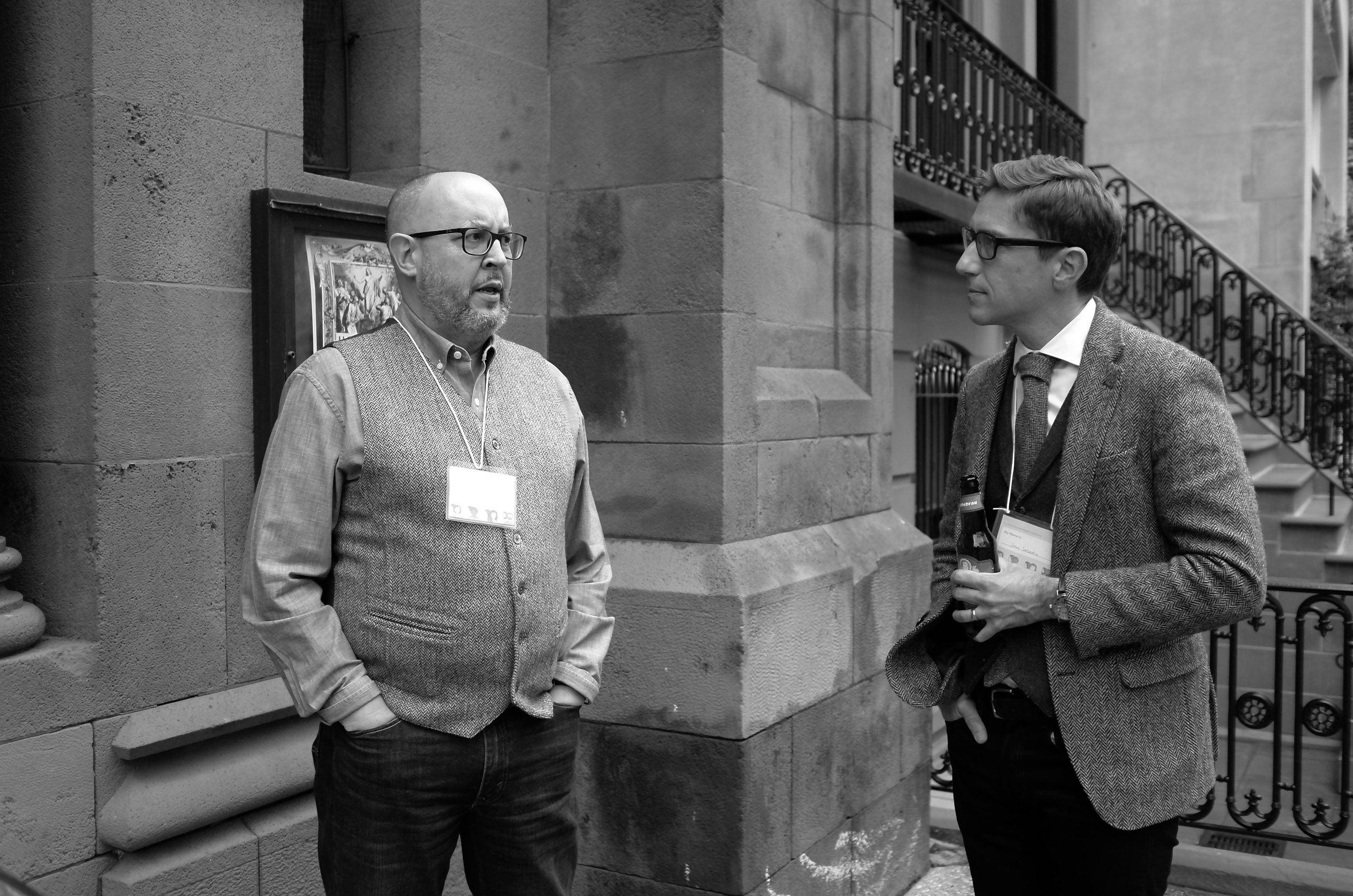
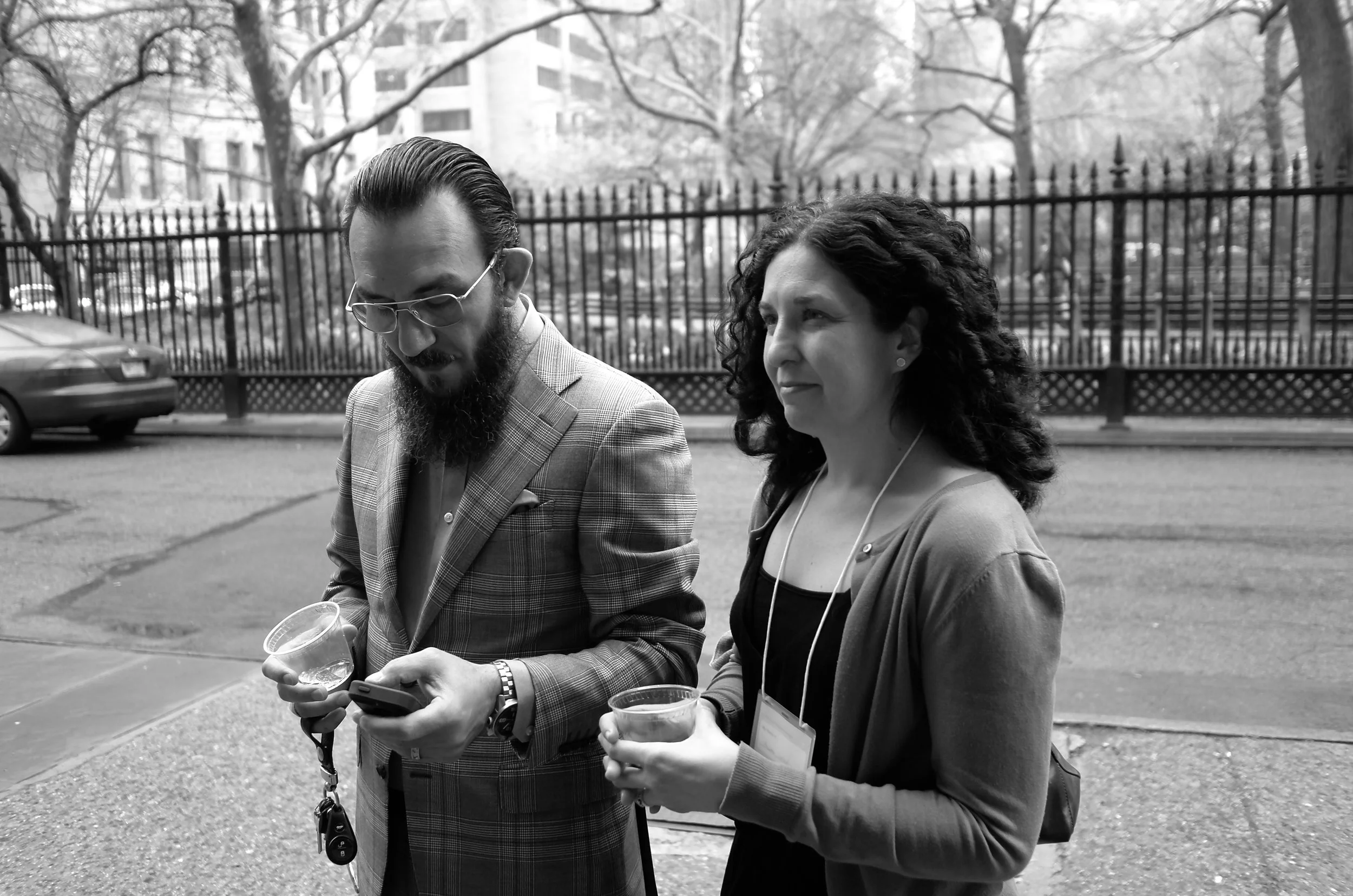
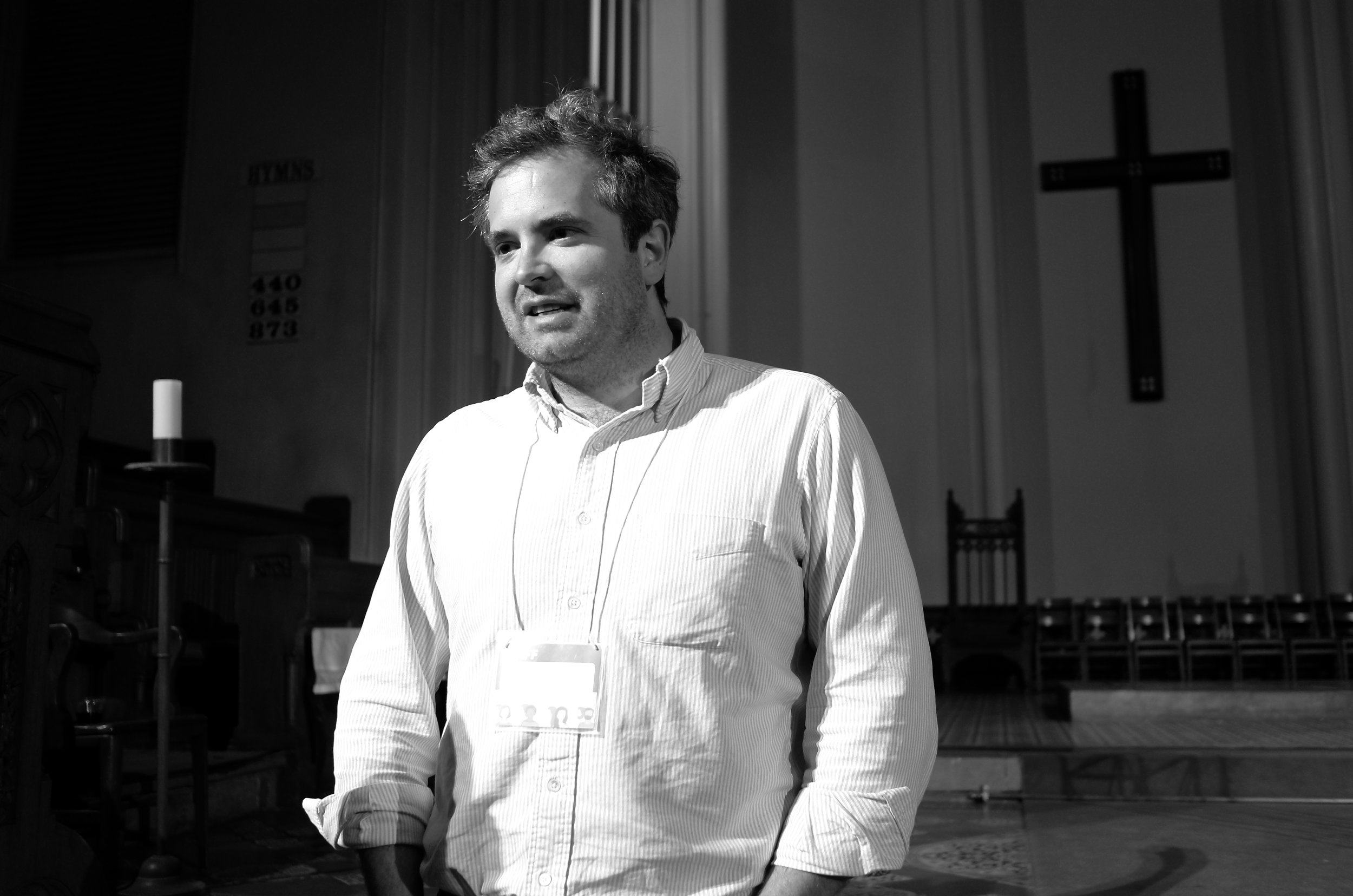
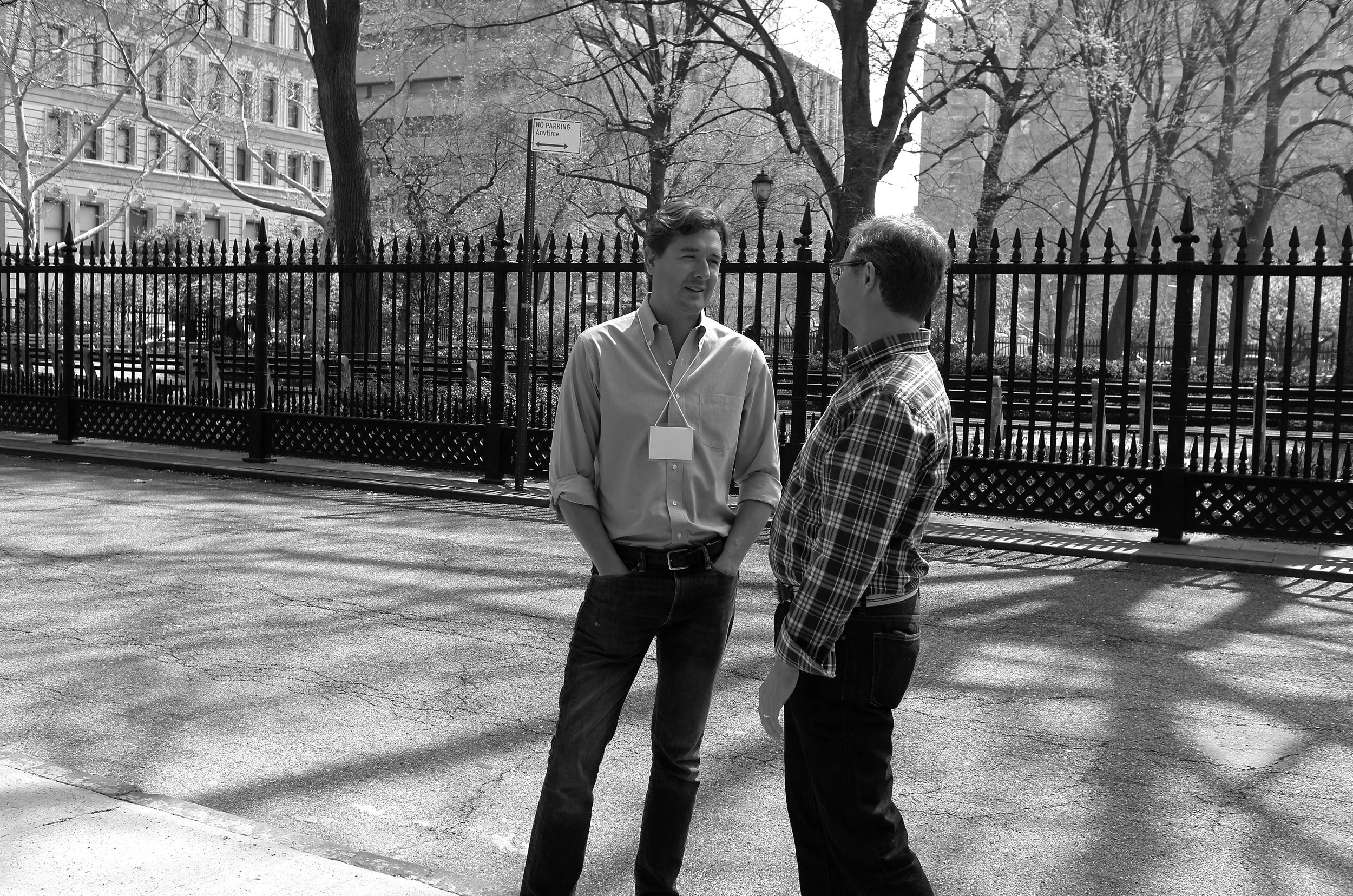
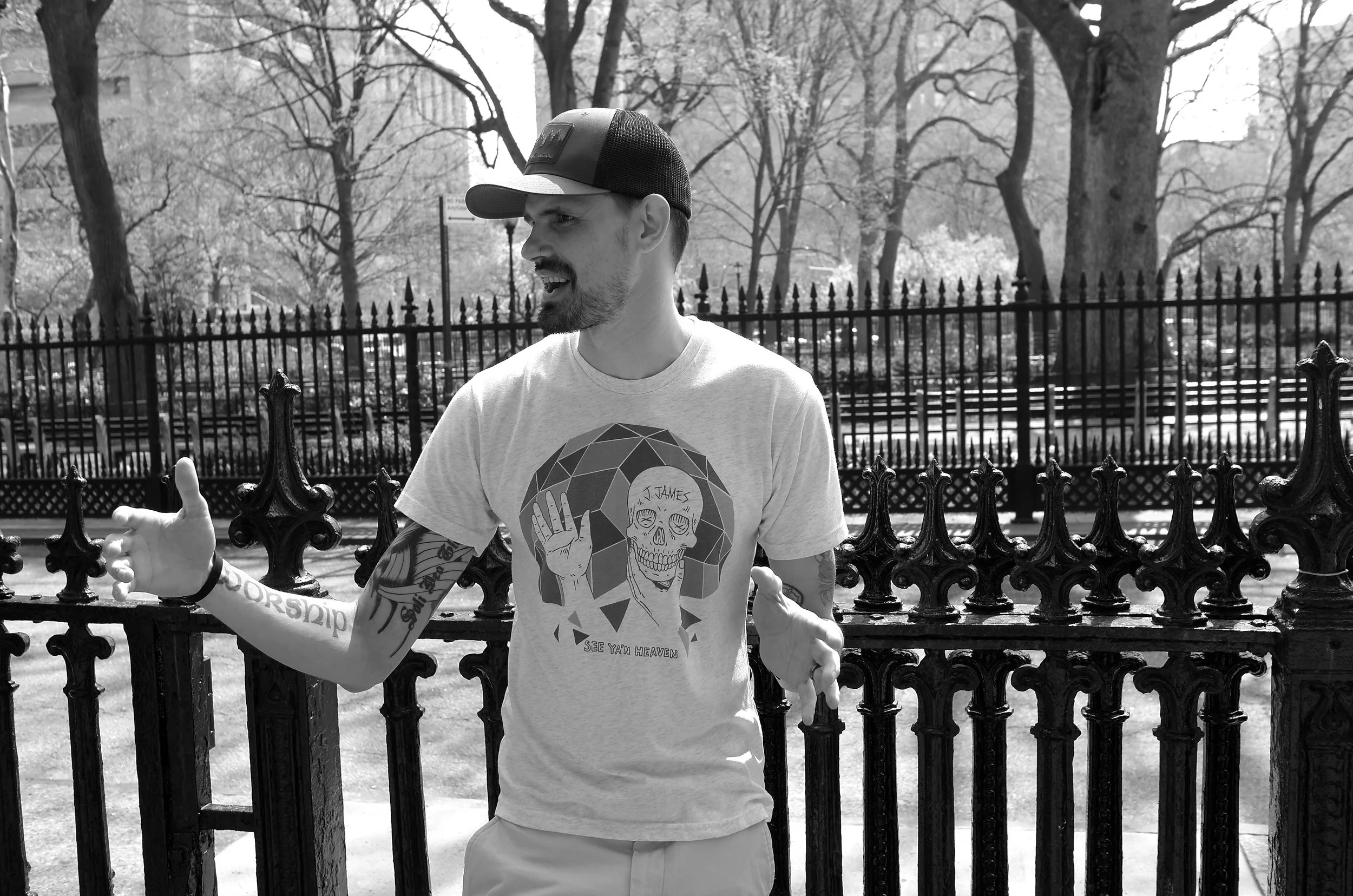
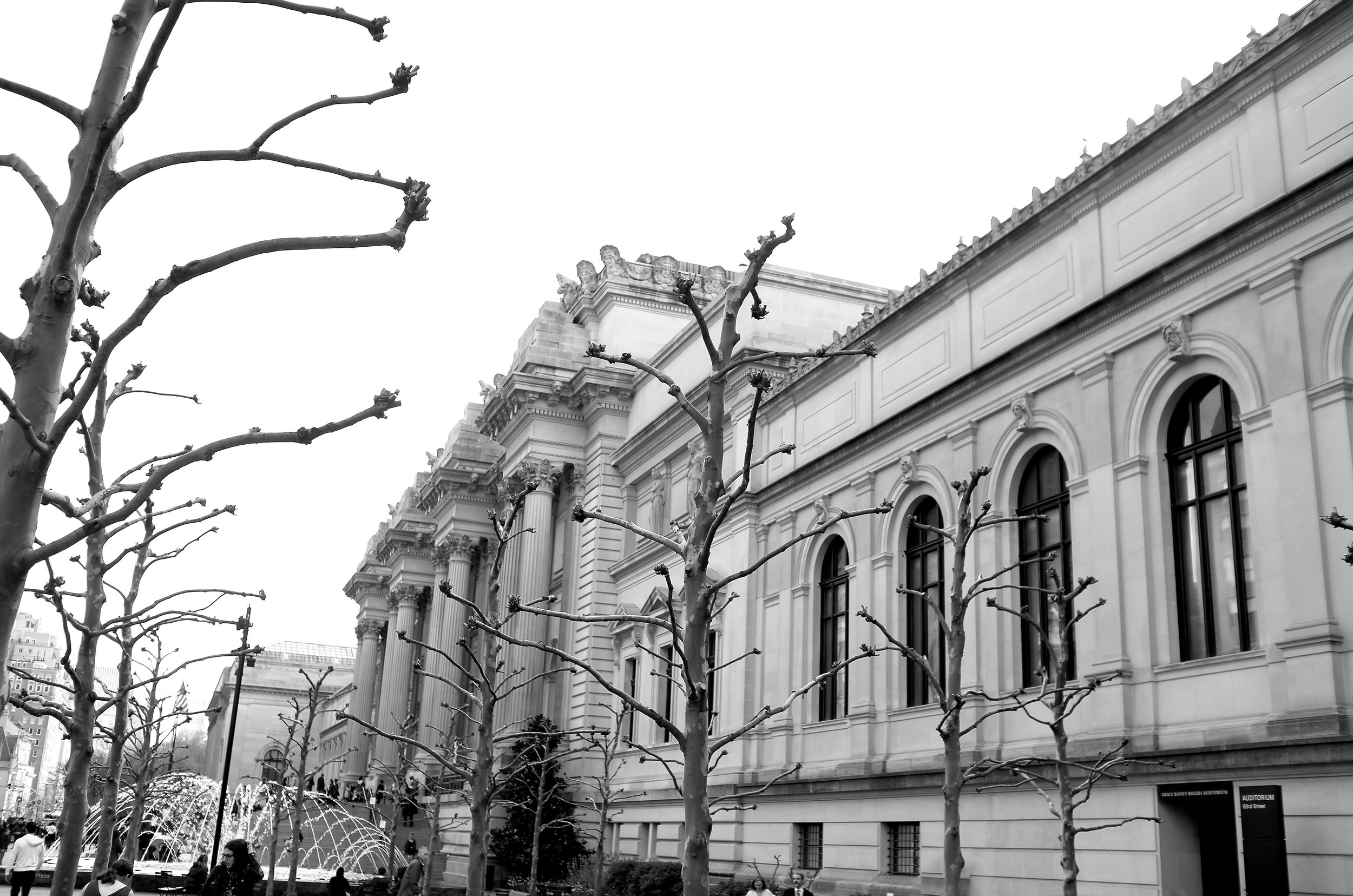

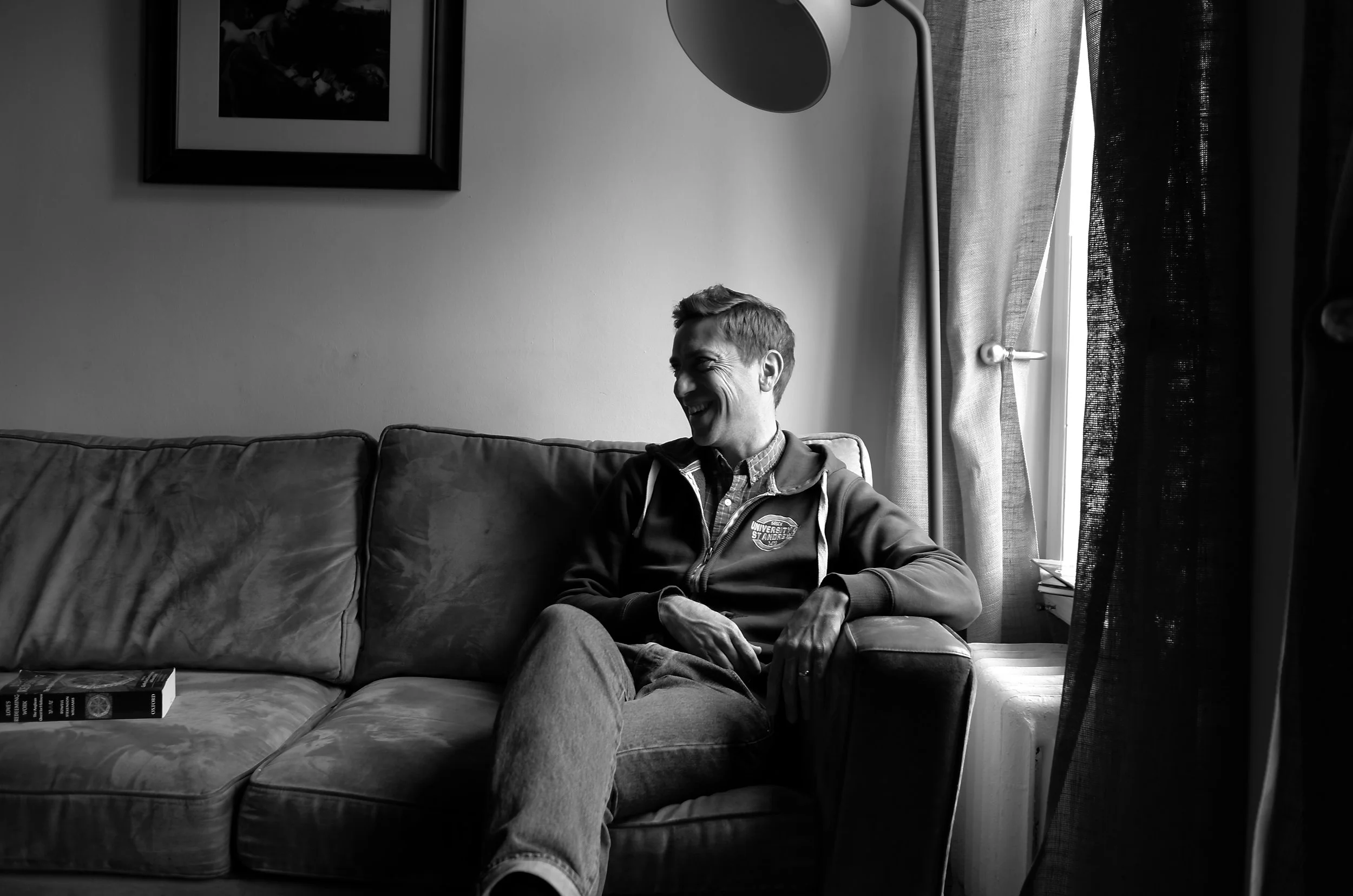


Orphan Lines
Did I make these up?
So the school year is ending over here and I am clearing out various bins in my office. I handwrite almost everything these days, poems, yes, but also blog posts, letters, casual essays, and academic articles, and very often, they remain on handwritten slips until I find the presence of mind or the time to put them together into something coherent. The system, such as it is, has drawbacks. For example, this. Rifling through papers slotting them into file folders, I have just come across some pages of verse, but I have no idea whose they are or what they are. Did I make these up? Did I copy them out from some source because I liked them? Was it a metrical experiment using random words (something I do sometimes)? Maybe it was an early version of my translations of Goethe's travel journal, which I have turned into a long poem called "Three September Seventeen Eighty Six," currently under review? Really, I have no idea. I Googled some lines and nothing comes up, so maybe I wrote them. Anyway, I don't think they're good enough to become real poems, but I also feel weird about just tearing them up, so I'll just put them here for safe keeping. If anyone knows them to be someone else's, or to sound eerily like something you've read in Goethe, feel free to let me know.
What I lacked in freedom of movement,
Since the roads plotted my sure course,
I made up for in freedom of worship: kneeling before
any star or starlet suggested to me
by the authorities on such matters.
Conscripted by my class, I still had bands
I could not listen to, and grew resentful for that.
The rebellion, that is so say, shrunk with the enclosure acts.
Odd, no? What is this thing? Then there's this:
Men in hats will save the world by
knowing whatever it is the people knew
who built it, and by being willing to learn
from the past enough to ensure a future
for the country and planet and their own
remedial and often pointless lives. These
salvations are available to men with hats
in a degree unique to their caste, although
accessible also by women in dresses.
I don't know what's going on here any more than you do.
Early Computer Memory
I wondered a bit why we stored "the future" in the attic.
My uncle Mike worked for a company called Honeywell designing tracking systems for nuclear missiles, or maybe it was answering phones--in my memory, it was missles--and anything tech-related we ever had as kids came from him. I remember when he asked us to drive him to the store to buy socks and he came out with a microwave, which had just been invented and which we were all a little afraid of.
Another time, he brought us an Apple IIe, one of those green screen early PC's and said: "this is the future." I wondered a bit why we stored "the future" in the attic and I don't remember if you could do anything with it: Oregon Trail, maybe. Soon, I learned Basic programming language from some friends at school. We would make backslashes have sword fights before going out to recess and having our own. It helped probably that we lived in the Pacific Northwest, where people's dads might have worked at early tech companies, but apart from that exposure in around fourth grade, computers didn't really figure in my life again until college, when suddenly we had to type papers.
Skeptics on Percy Shelley's Drowning
When the article is not overly skeptical, which it is most of the time, it is sometimes overly romantic...
It has been 196 years since Percy Shelley drowned in the Bay of Lerici, and to mark the occasion, the Guardian UK has reposted an essay of Richard Holmes’ on Shelley’s drowning. The Keats-Shelley house in Rome forward it to my Twitter feed which is where I found it. I have a few problems with it. Not with the facts per se that Holmes puts forward--though he's a little fast and loose with those on occasion — but more with interpretation of what things we know from the historical record.
For example, Holmes says "Mary Shelley and Jane Edwards [were] still on the balcony at Casa Magnani staring out over the Bay of Lerici expecting the boats to come home." But he also lists this among the things we shouldn't believe, among the things that overly romanticize nature of Shelly's death story. There's no reason to do this. Is he suggesting that though their house looked over the water where their husbands were drowned, the women didn't stare forlornly into the distance hoping they would come back? That seems to me uselessly skeptical.
Furthermore, though Edward Trelawney was a fabulist, there isn't any reason to think that he made up or spread the rumors of the pirates’ attack on Shelley’s boat the Don Juan as Holmes claims. There was after all a bag of cash on board, and it was after all the largest ship in the entire region belonging to an English milord who everyone in town knew to be wealthy. And there were pirates then who occasionally stole things. Rumors spread around that it might've been a pirate attack because it might have been a pirate attack. The possibility of the pirate attack doesn't "disappear upon inspection" as Holmes claims it does simply because there were still valuables among the wreckage. As Holmes says in the same piece, "the boat went down so quickly that Williams did not have time to kick off his boots." Surely then, it is conceivable that pirates rammed the boat, thinking to board and loot it, but found that it sank too quickly to grab anything. There’s no reason to call Trelawney a liar, even though he did sometimes stretch details.
When the article is not overly skeptical, which it is most of the time, it is sometimes overly romantic: the very crime with which Holmes charges others spreading around Shelley's death. For example, in his rendering, as the ship went down, "Shelley thrust a new copy of Keats's poems into his jacket pocket, so hard that it doubled-back and broke the spine." Homes thinks this because the covers have been bent back in the copy we found. But we must think for a moment: would a man about to drown in the ocean, or at least a man who can't swim about to fall into the ocean really grab a copy of poetry to take with him? Not likely. Even if Shelley valued Keats’ poems, and he did very much, he likely would not have had the presence of mind to take the volume with him rather than, say, a life preserver or a cask of wine or the bag of cash. No, it is just as likely that Shelley read the poems often and bent the covers so that they would fit in a trouser pocket on another occasion or that they were bent back while it was on Shelley’s person as he turned over and over in the tide. He was in the water for three weeks and his face was unrecognizable when they pull them out; it is very possible that the book was less recognizable than once might have been for the same reasons.
Still Holmes does us a service reminding us of the details of Shelly's death. I also like that he raises the possibility of Shelley’s eventual self-sacrifice, giving the dinghy to the two shipmates rather than jumping aboard himself. It would be perfectly in keeping with his character.

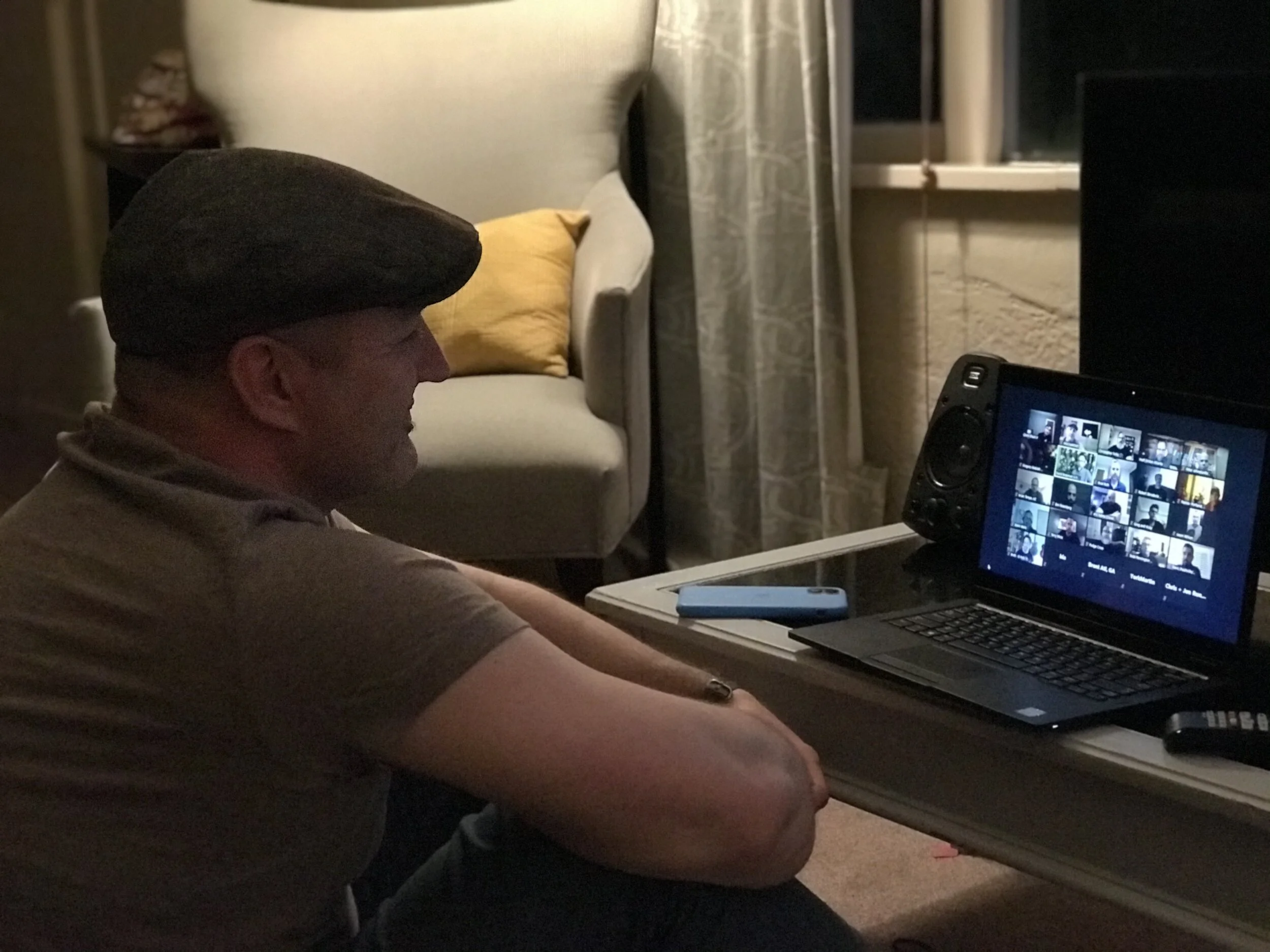

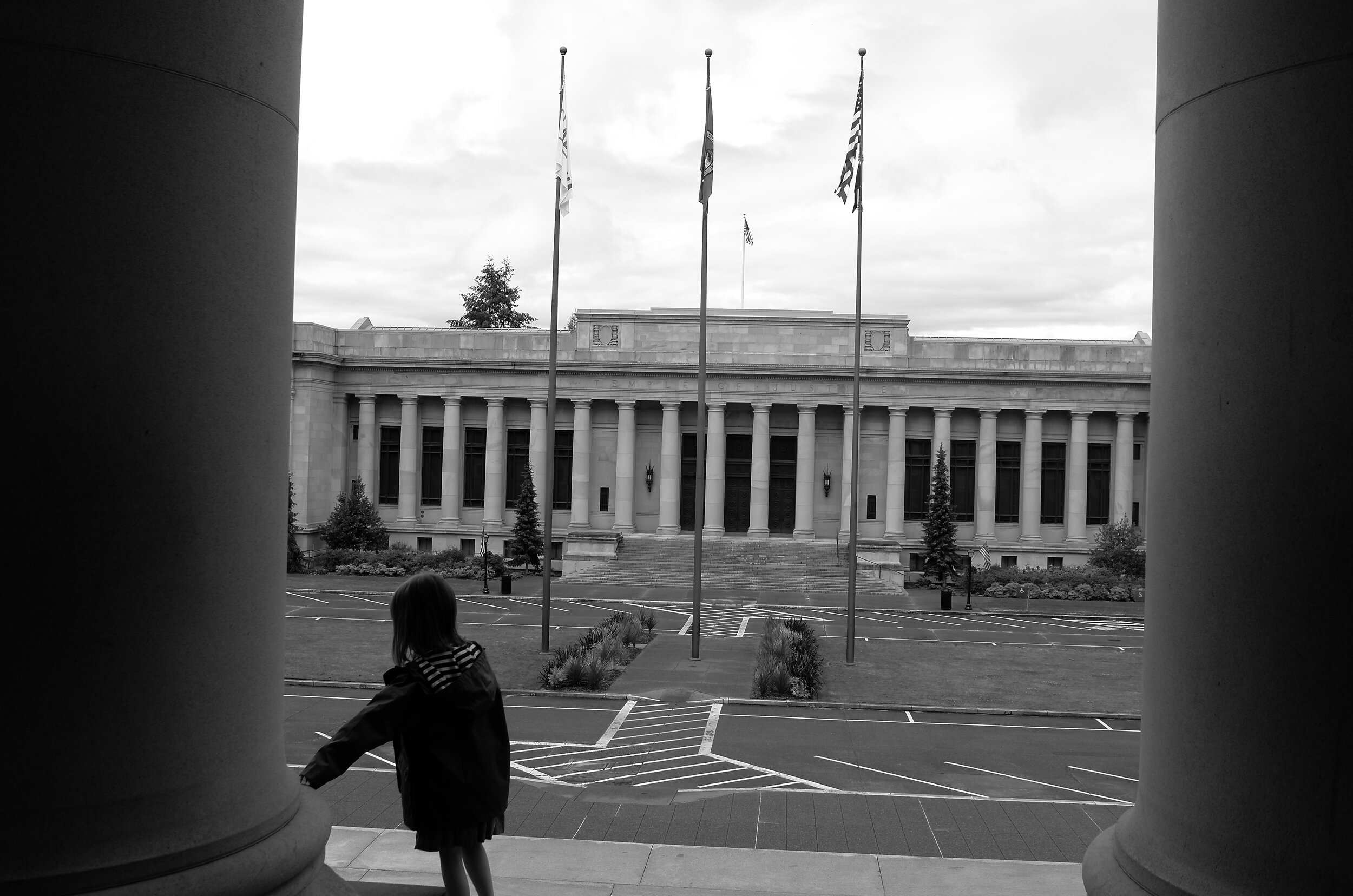
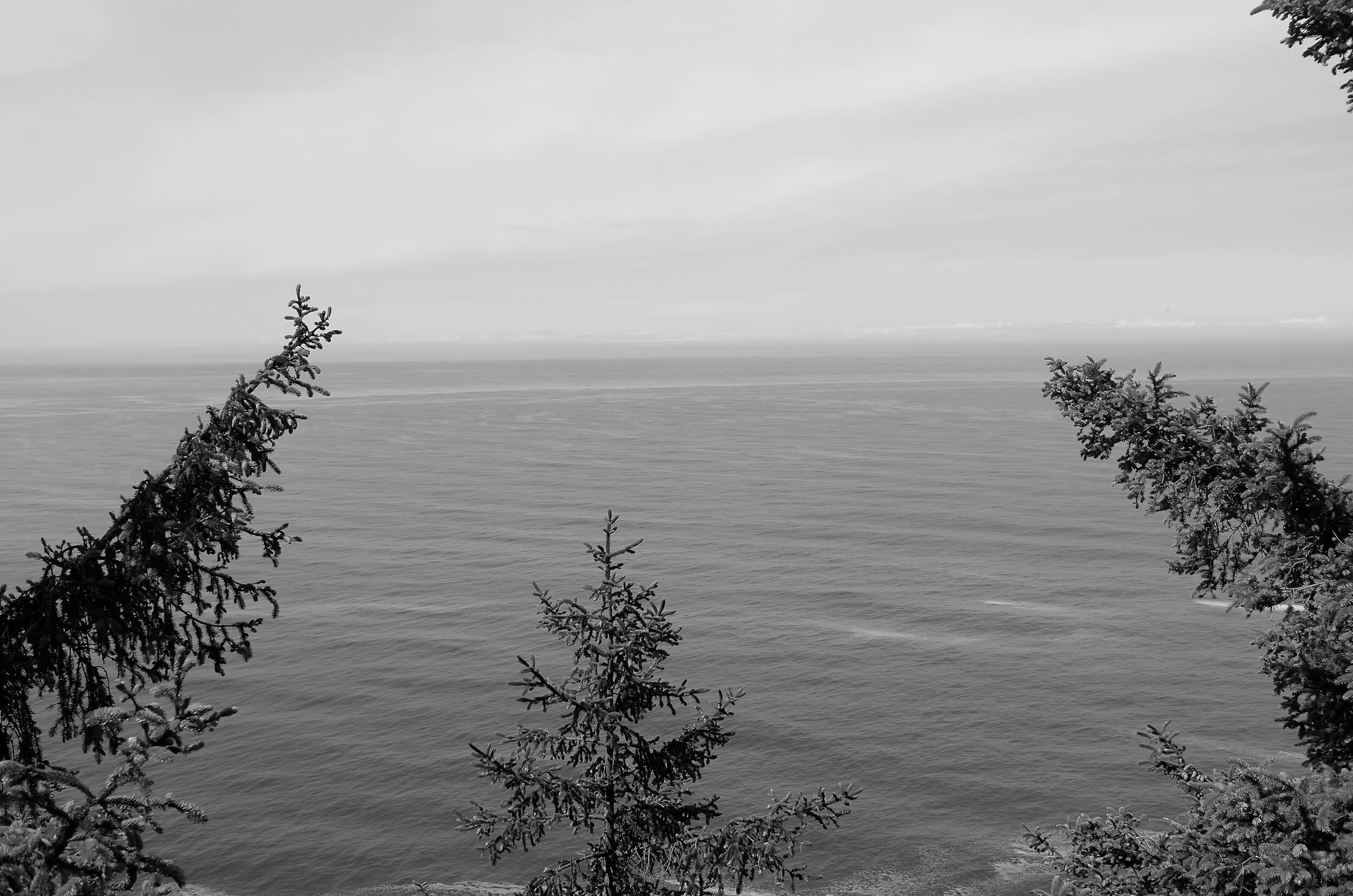


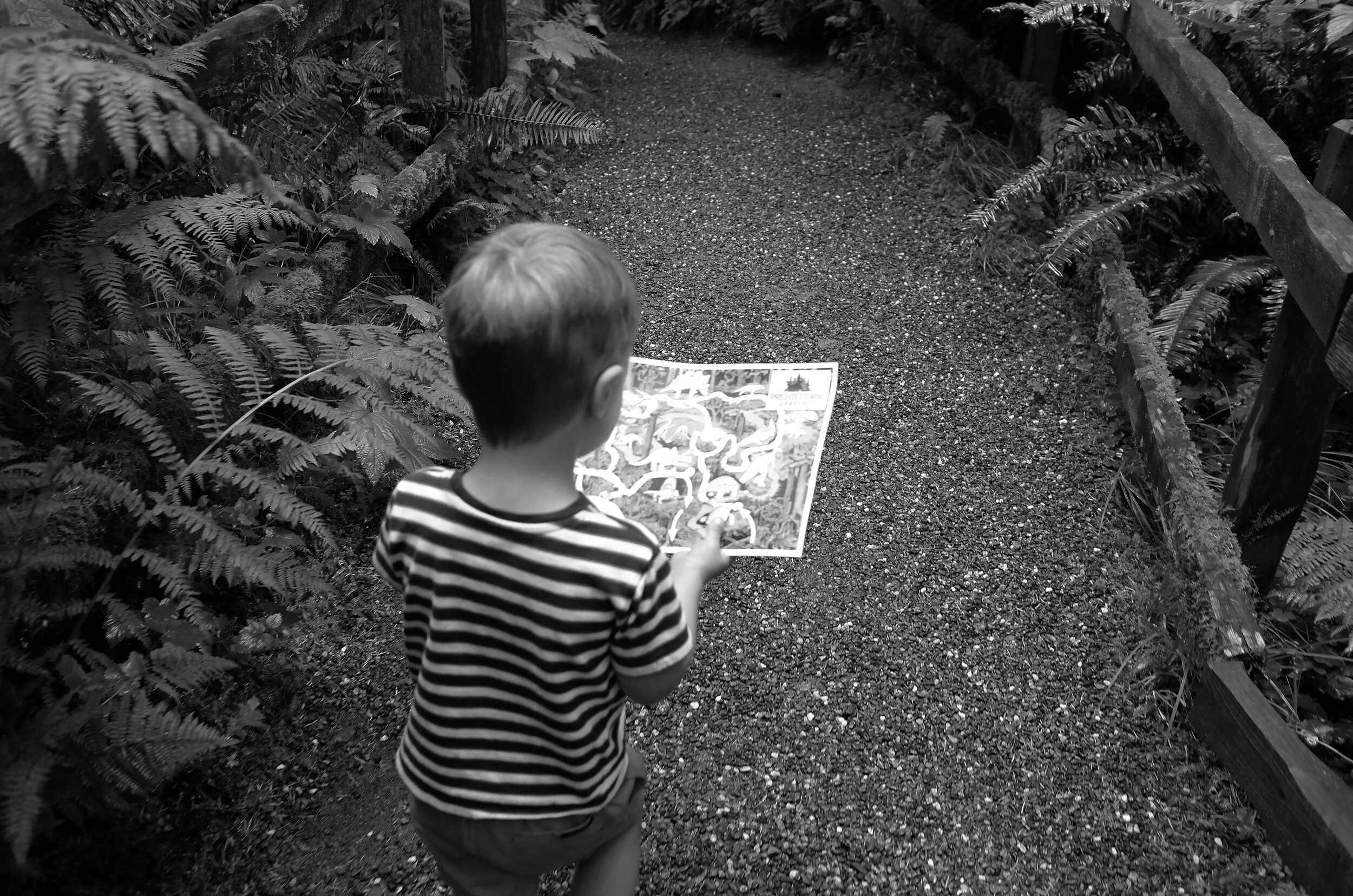
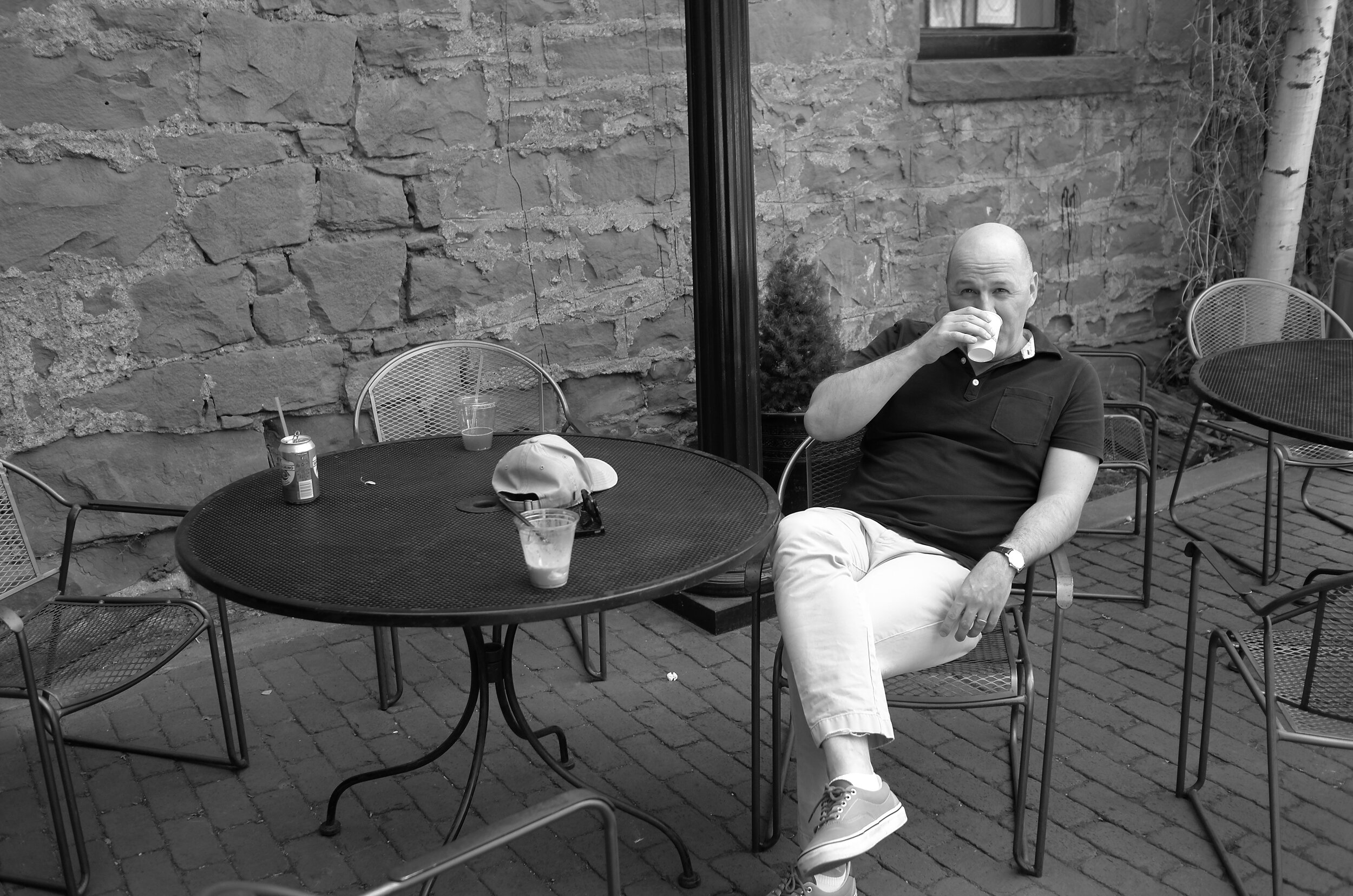
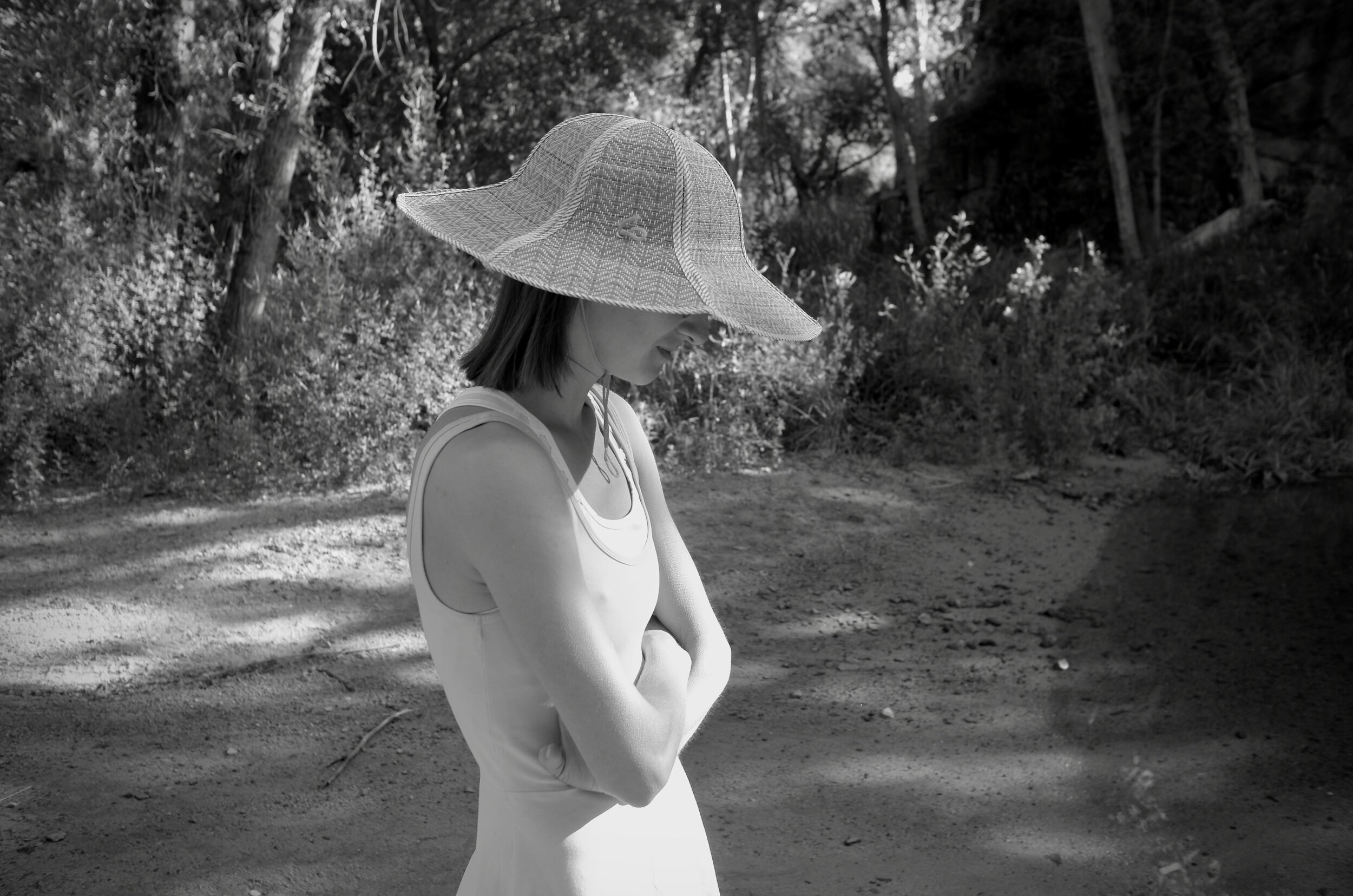

















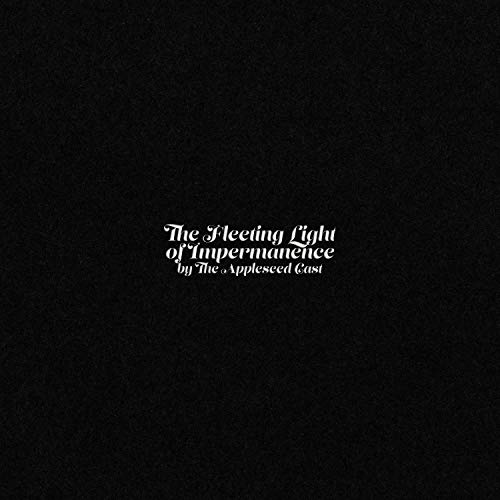
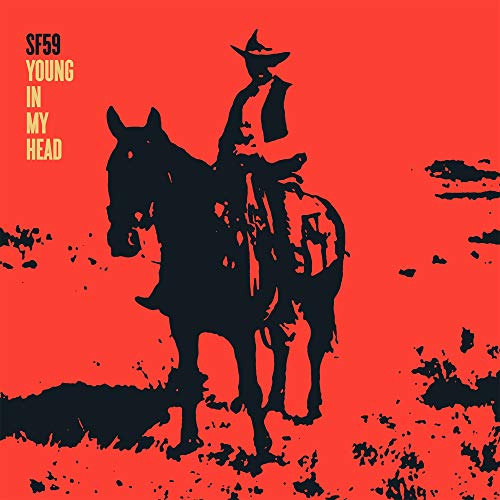

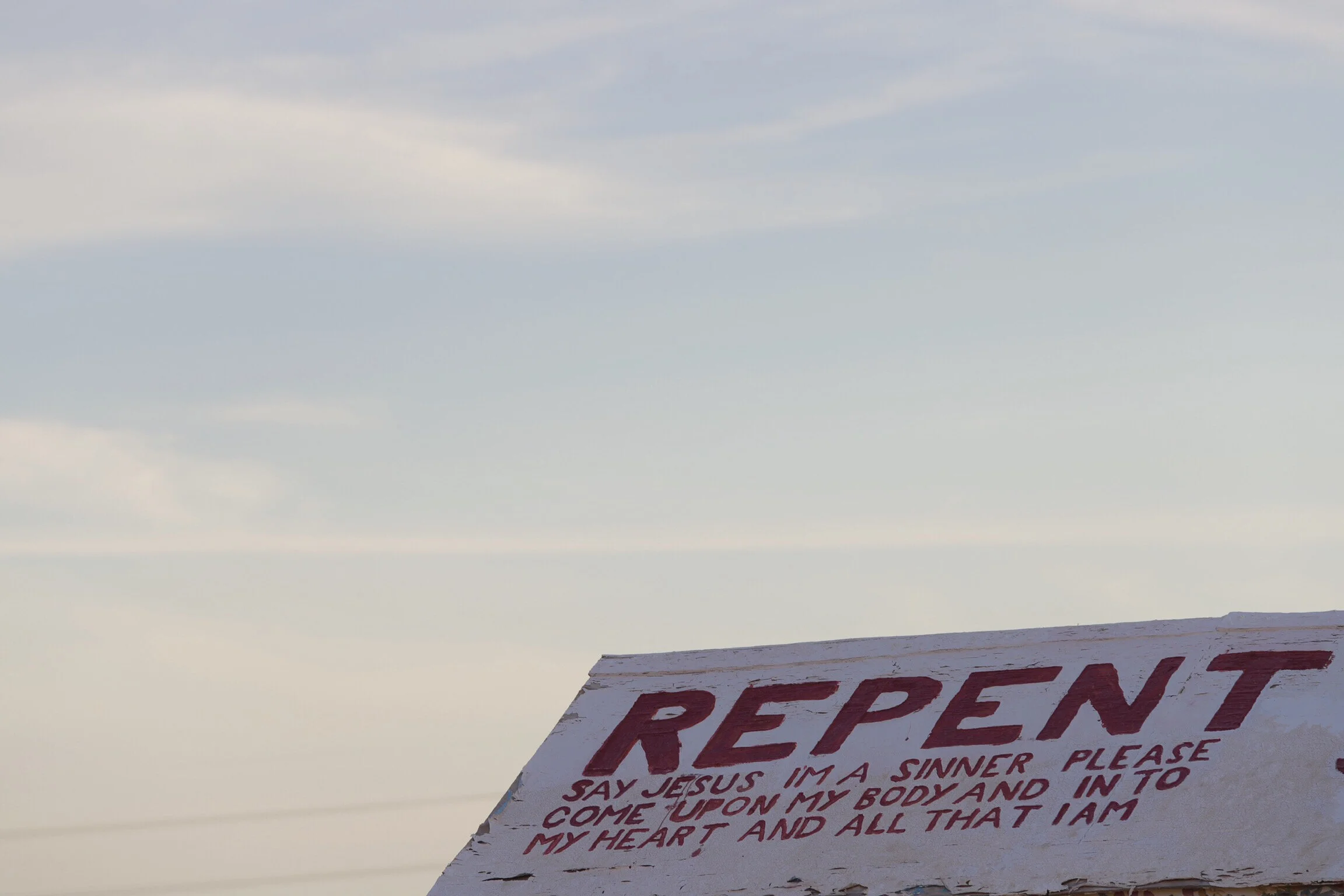
![Doing Research with Humanities Undergraduates [uncut version]](https://images.squarespace-cdn.com/content/v1/50a80f12e4b089e056ed8c2b/1566105598651-R8O55EGYS0WX1K18MLZY/image-asset.jpeg)



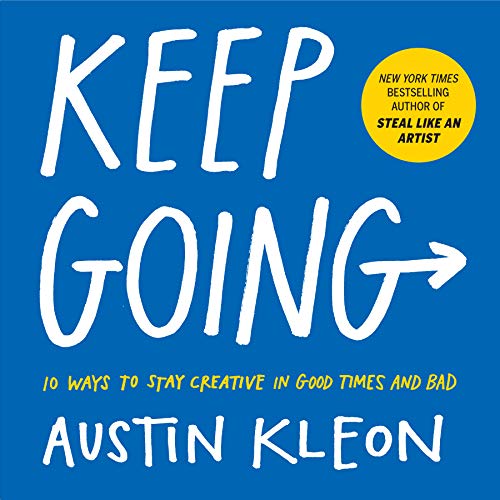






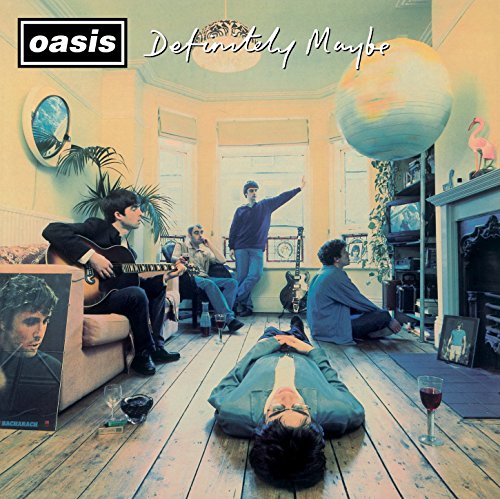

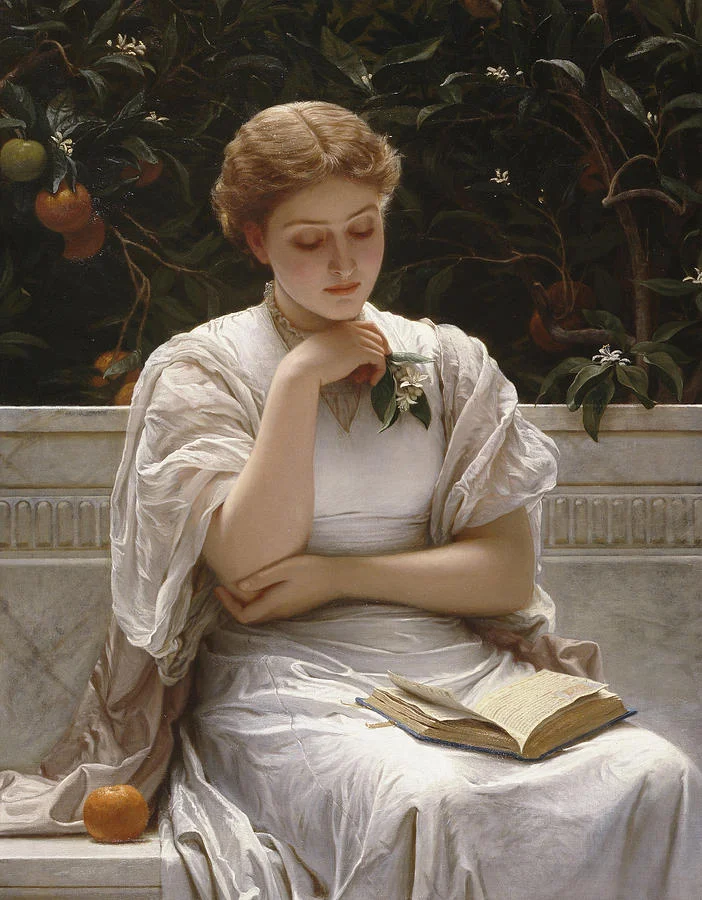


There isn’t anything affected in either Garrett Soucy’s singing voice or his literary style. Both are spare as a cabin in the Maine woods, a cast iron stove in the corner for heat, but also for hardness. Sometimes when walking, one comes upon the remnants of such a place, a chimney that has out-lasted its house. That’s these poems: compelling, comfortable, and classic as brick.